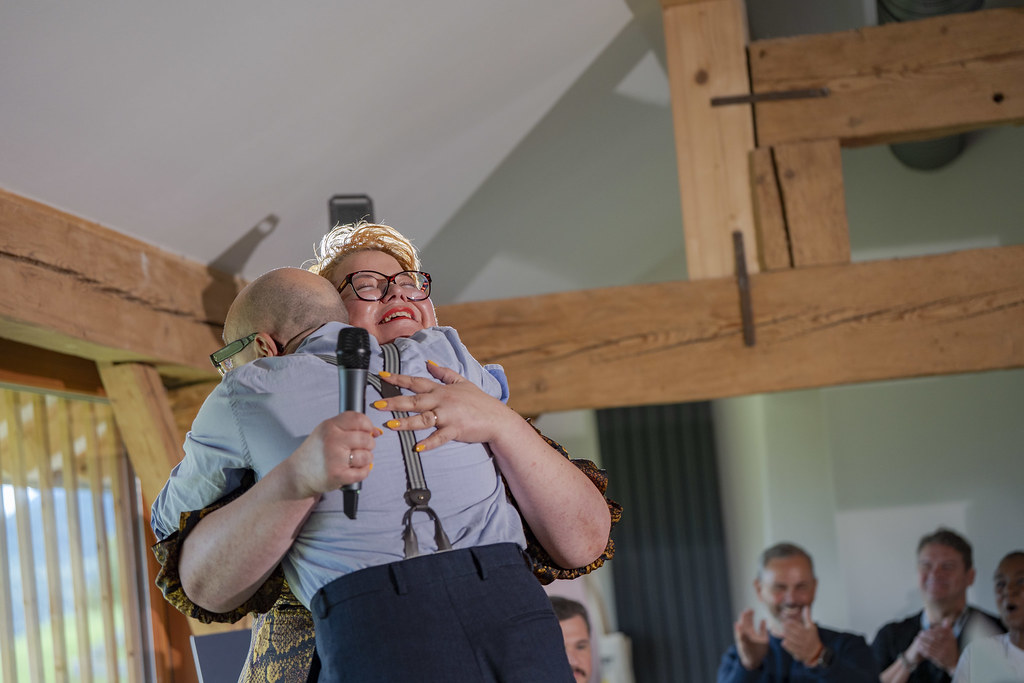
I went to the 2025 Speakery Summit in Ruhpolding, Bavaria. Run by Marcus John Henry Brown, it is, as Matt Ballantine said it’d be, one of the best things I’ve ever done. Here’s a roundup of what I learned…
- Firstly, never trust a numbered list of things (including this one).
- Despite Marcus having a distinct list of 11 Speakery Protocols, I got past 11 in my notes within the first hour. I started documenting his list and quickly realised I’d get beyond one notepad throughout the event.
- Never underestimate the power of a supportive community – or the influence you might have on others!
- I took a small (tiny, really) leap of faith heading to the Bavarian Alps. I think Matt Ballantine might have finally realised he’s an actual influencer, as I met (at least) two folks who were also there as a direct result of his recommendation from last year. Although I’d “met” Marcus online at a couple of events before, like Paul Armstrong’s TBD conference, and hearing him talking to Matt and Chris on the WB-40 podcast we’d not met in-person. I appreciated the pre-event Q&A where I met the brilliant Mark Earls, but Matt and Mark aside, I didn’t know anyone else who was going to be there. Which is quite a refreshing change of pace from the usual comms-y and intranetty events circuits I frequent.
- I also met some wonderful people who were there as a direct result of the glorious Brianna Wiest telling her readers that she’s going to be there. Including Scott, who travelled all the way from Ohio.
- If the road to hell is paved with good intentions, the pathway to heaven is lit up with laser-focused intent.
- Apart from being easily led by highly influential wonderful people (Speakery isn’t a cult, is it? Maybe it is, but I’m in.) what we all had in common was the intent and desire to improve our public speaking. The entire event felt shaped around fostering a sense of connection, of learning together in a safe space. We were all able to learn from each other, despite our diverse backgrounds and range of experience.
- Marcus invited us all to deconstruct the event, during and after it. He put in a phenomenal amount of time and energy into making the event work for everyone, from the speakers to participants. He’s brilliant at bringing a seemingly random collection of speakers and topics together, which all built on the theme of levelling up. We had takeaways and tips and time to digest the delicious food as well as our thoughts.
- Being obsessed with your audience goes beyond user centred design.
- When thinking about communications, knowing your audience is key. When thinking about accessible user centred design, knowing what your users need is vital. This event was a masterstroke in knowing the people coming, doing specific research, and building in experiences to delight and challenge us.
- There is no silver bullet to get good at speaking, you have to do the work.
- When I think of +-speakers I admire, they never claim to just pitch up and pitch on the day (and if they do they’re probably lying). This event was a brilliant reminder that you have to do the work to understand your audience, the environment in which you’re speaking and how to make sure your messages land.
- On the Friday night, we were “surprised” by Marcus to learn we had to do a dry-run of our talks early. Whilst I completely blanked on my key points as first up of our little gang, I’m also really glad I didn’t definitely know it was coming, as it would have distracted me from the talks in the run-up to that session. And blanking was okay.
- I had some really helpful and wonderful feedback from Marcus, Brianna and the others in my workshop, and I took that on board. I spent some time running through it back in my hotel room with the remote help of my glorious co-author Matisse Hamel-Nelis. When you’ve written an entire book on accessible communications, being able to distil down to 5 minutes with something meaningful to take away is hard. The next day I felt much more confident and clear in my messaging.
- Sometimes the ghosts inside our heads are there to help – but we can also replace them.
- Marcus encouraged us to reflect on the ghosts, on the negative voices – and sometimes very real memories – of things that went wrong in the past. We thought about the people who’ve criticised us, fairly or unfairly, who still live there rent-free. They may have shaped our paths in life, for better or for worse – but sometimes it’s helpful to think of them to show how far we’ve come.
- I have a new ghost inside my head now. The image of Marcus, completely all-out cheering me when I finished my 5 minute talk, arms thrust out in celebration. That’s a picture I never want to forget, and will channel in the future, too.
Doodling helps me listen and remember things
I’ve been told off at school and in the office for doodling, but drawing (or doing something with my hands) helps me pay attention. If I’m writing down notes verbatim, chances are I haven’t processed them.
Apologies to all those included here who look absolutely nothing like their sketches; as I said, doodling is really to help me focus and remember the things and it was a fascinating bunch of speakers. Also, you can see the difference in styles depending on if I could find my trusty Tombow pens or not.
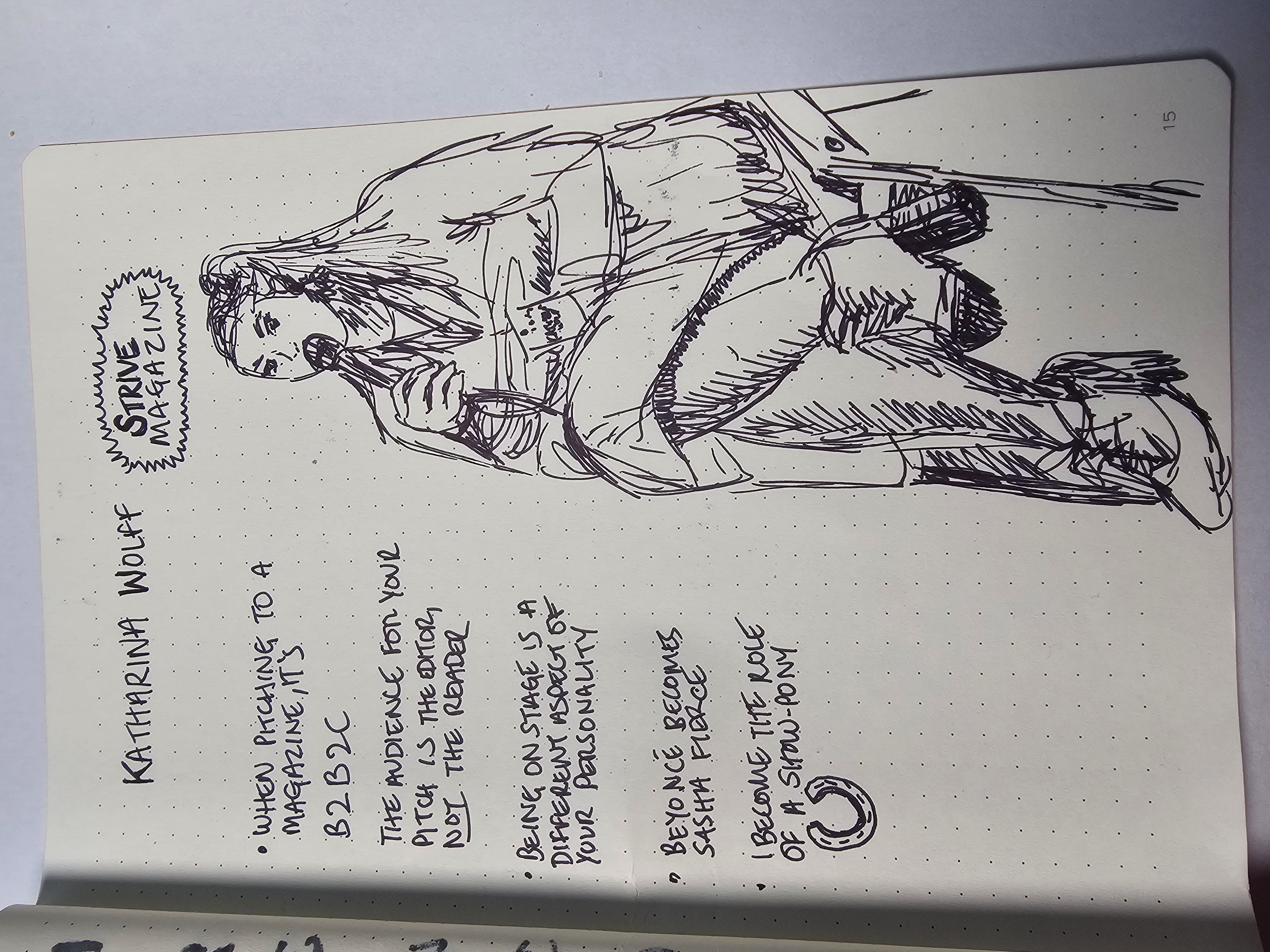
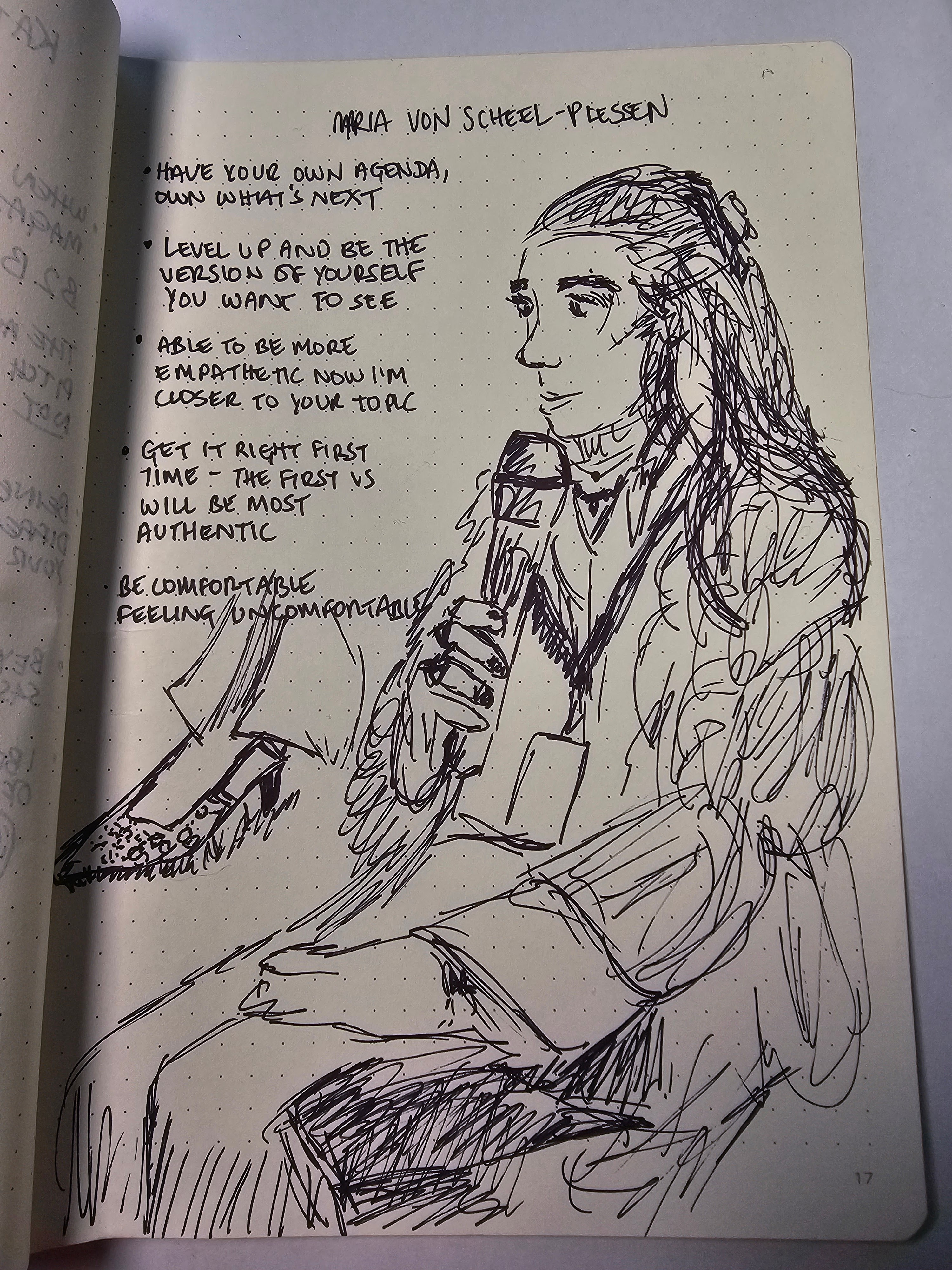
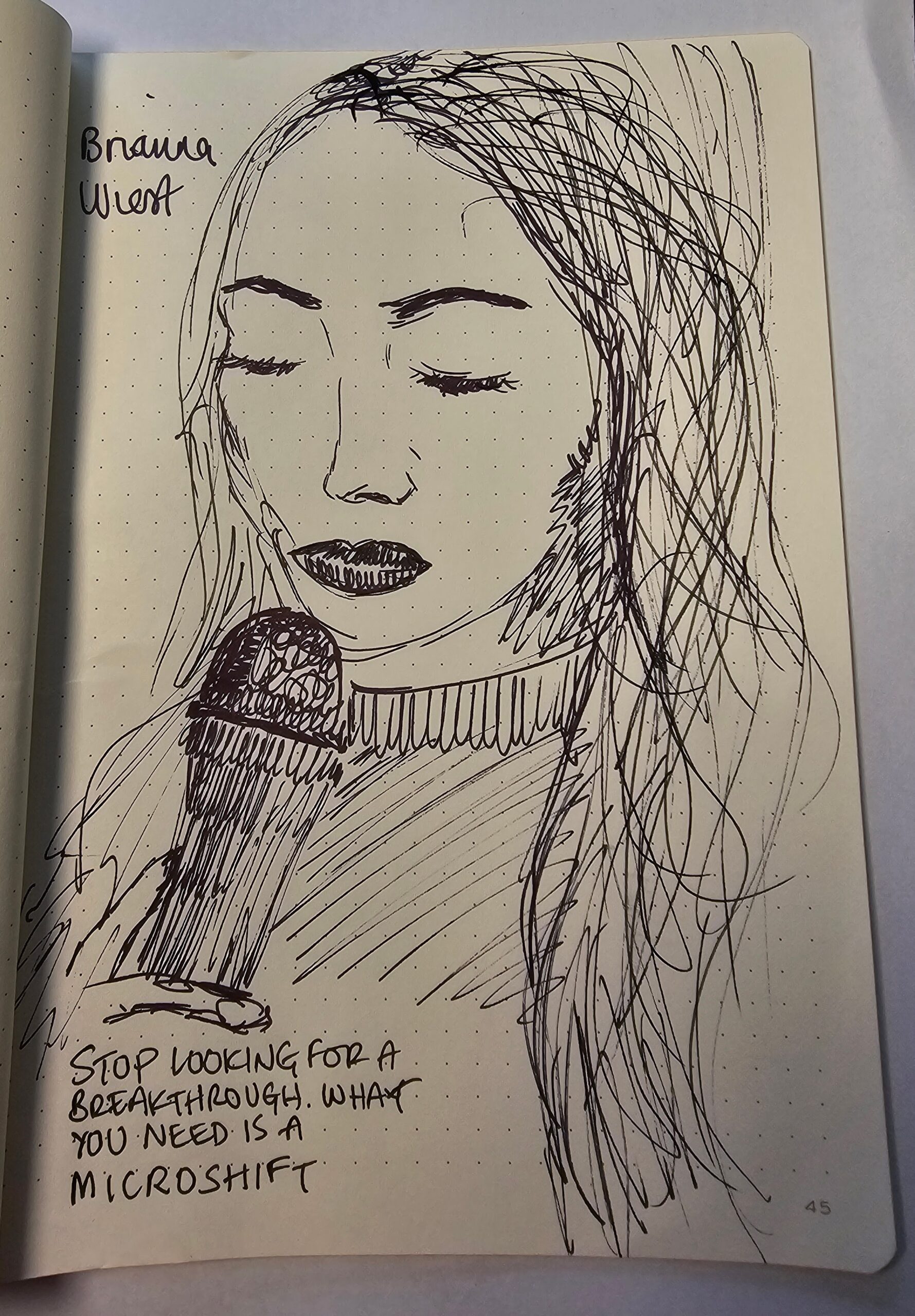
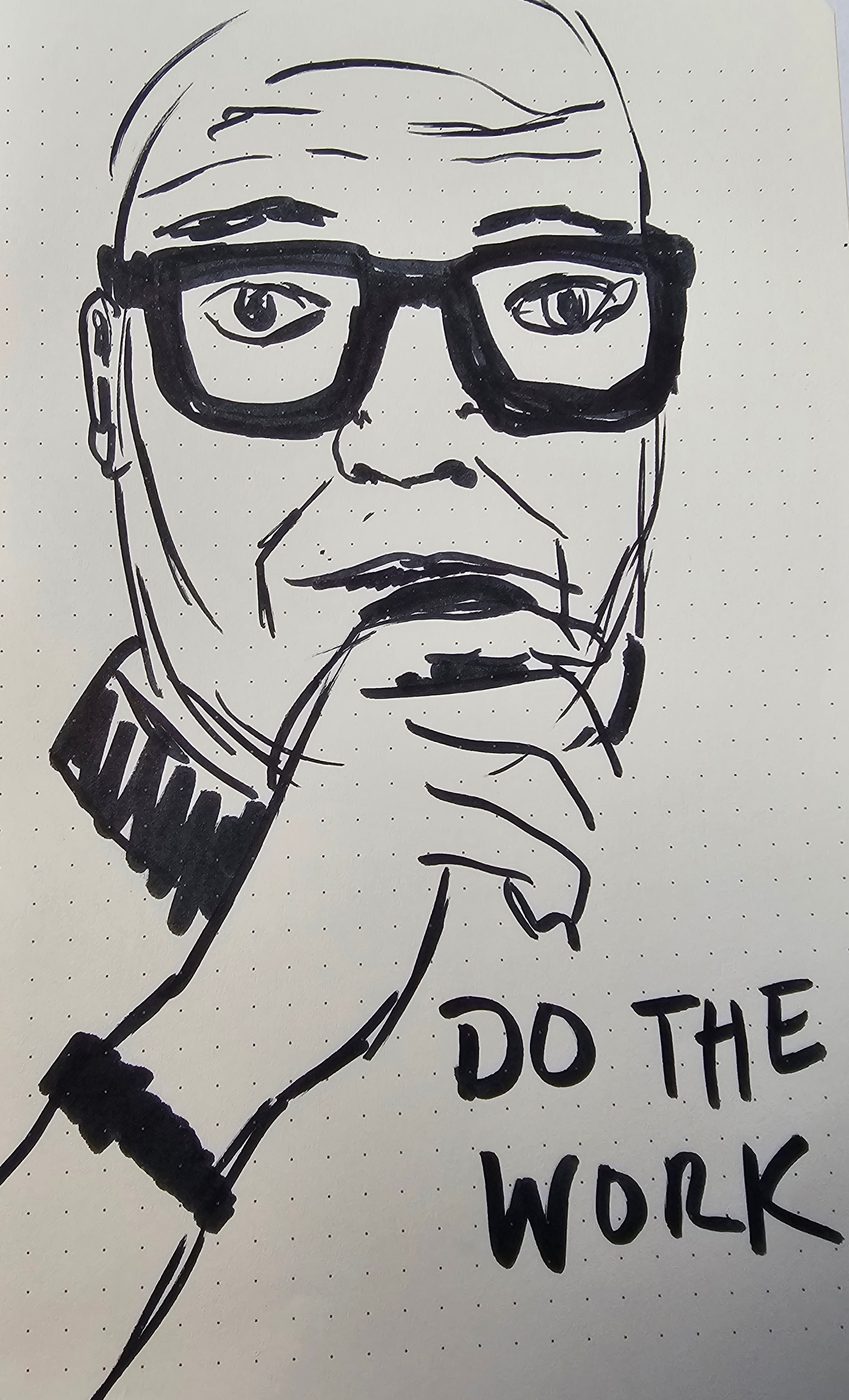
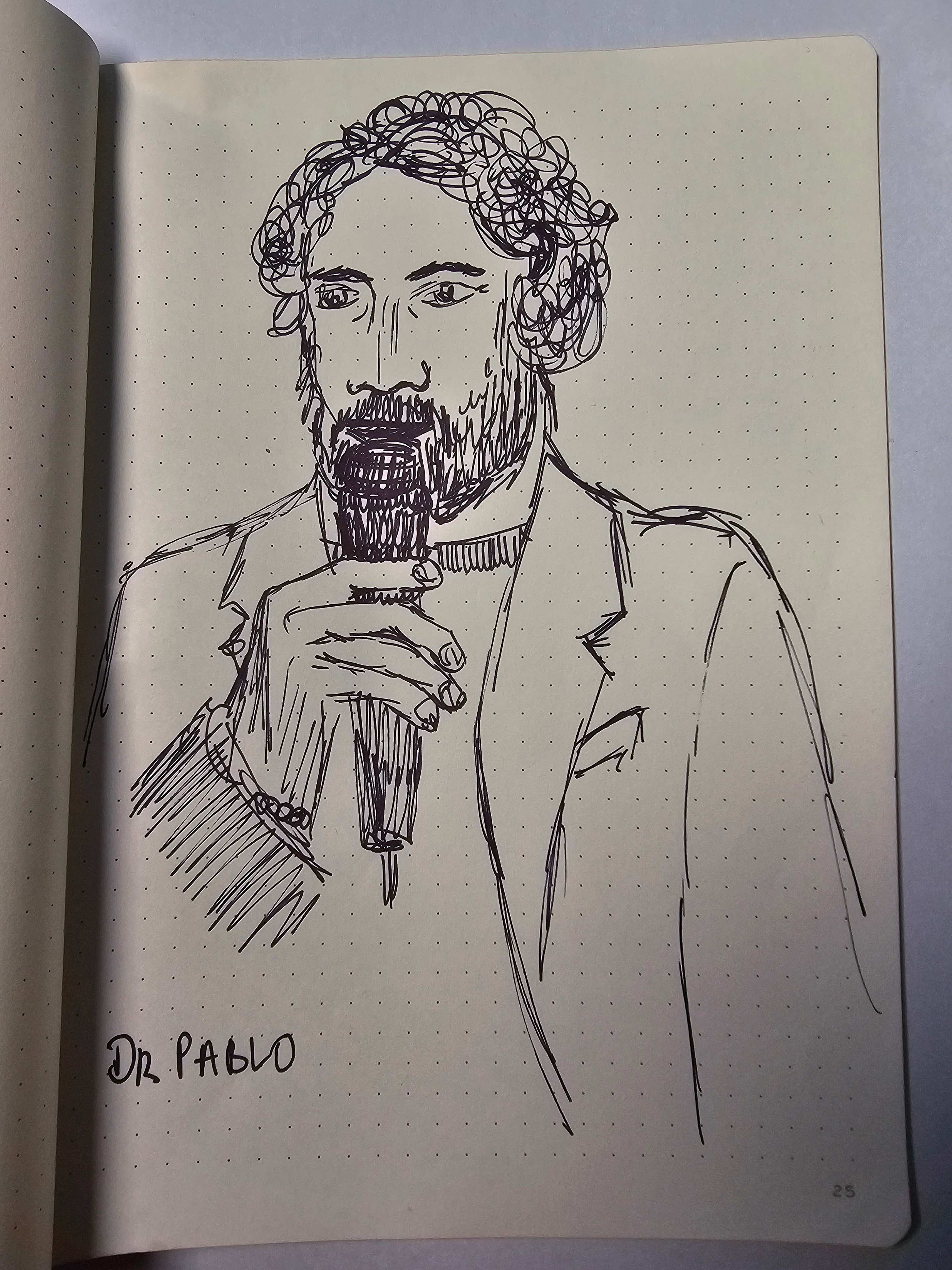
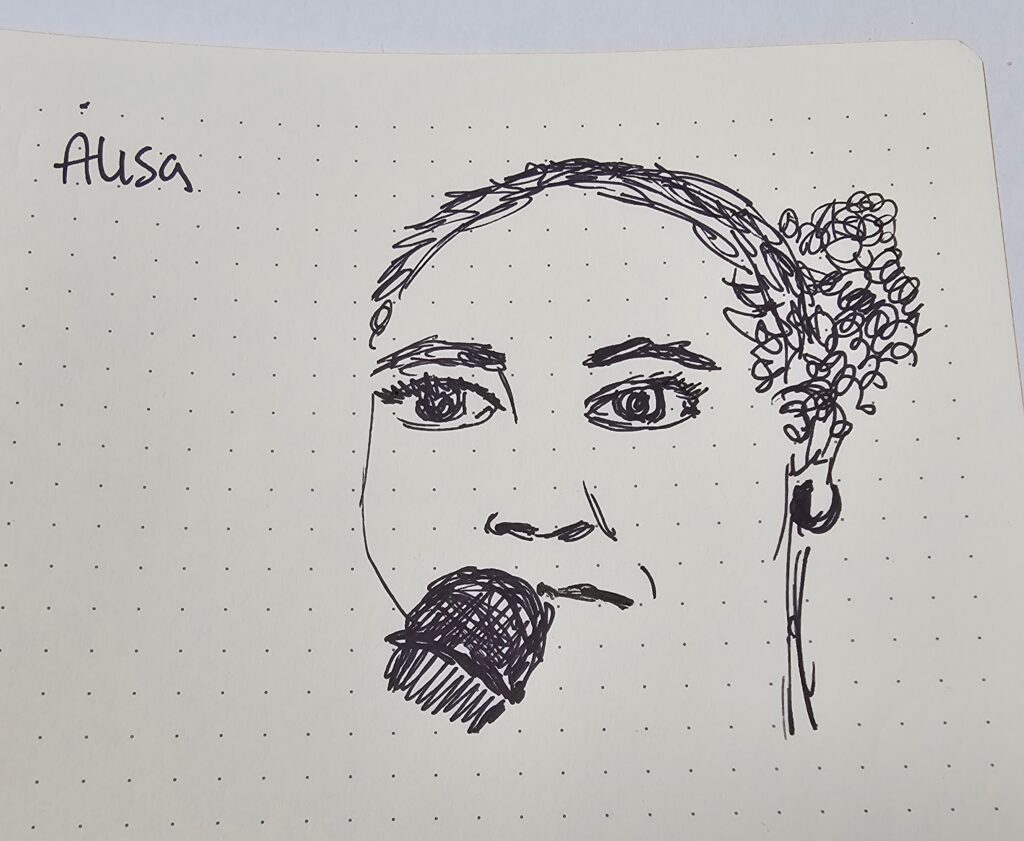
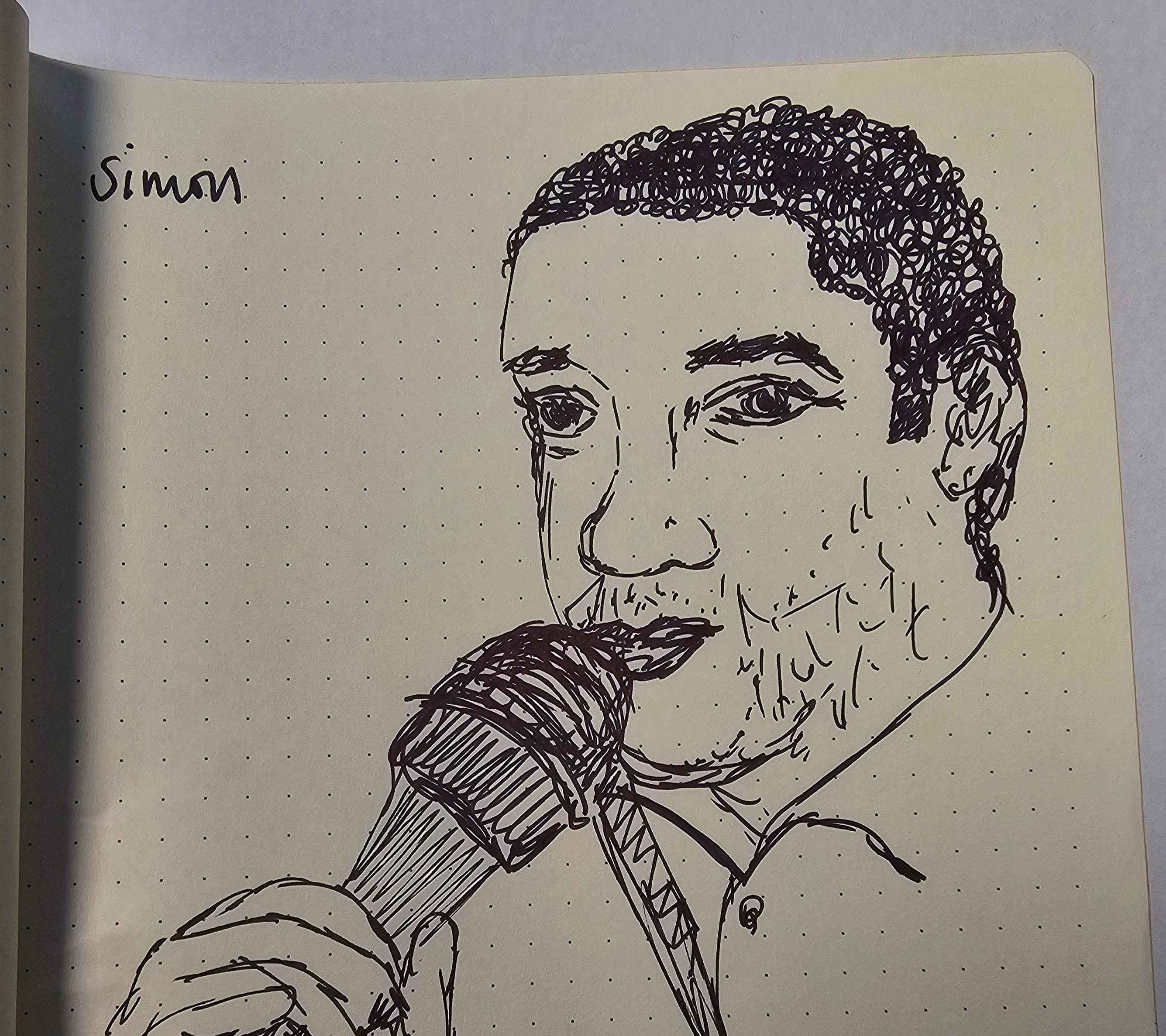
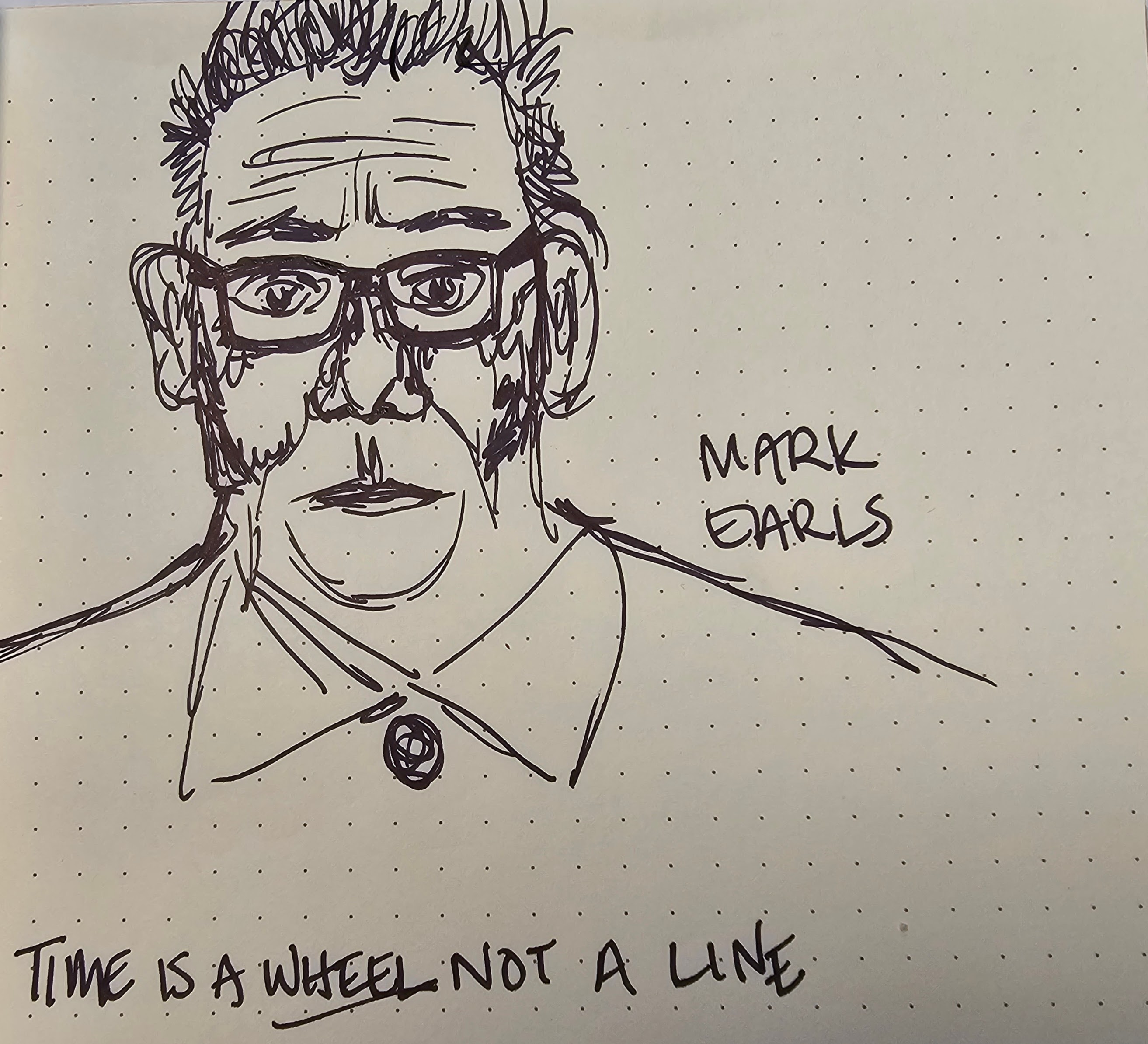
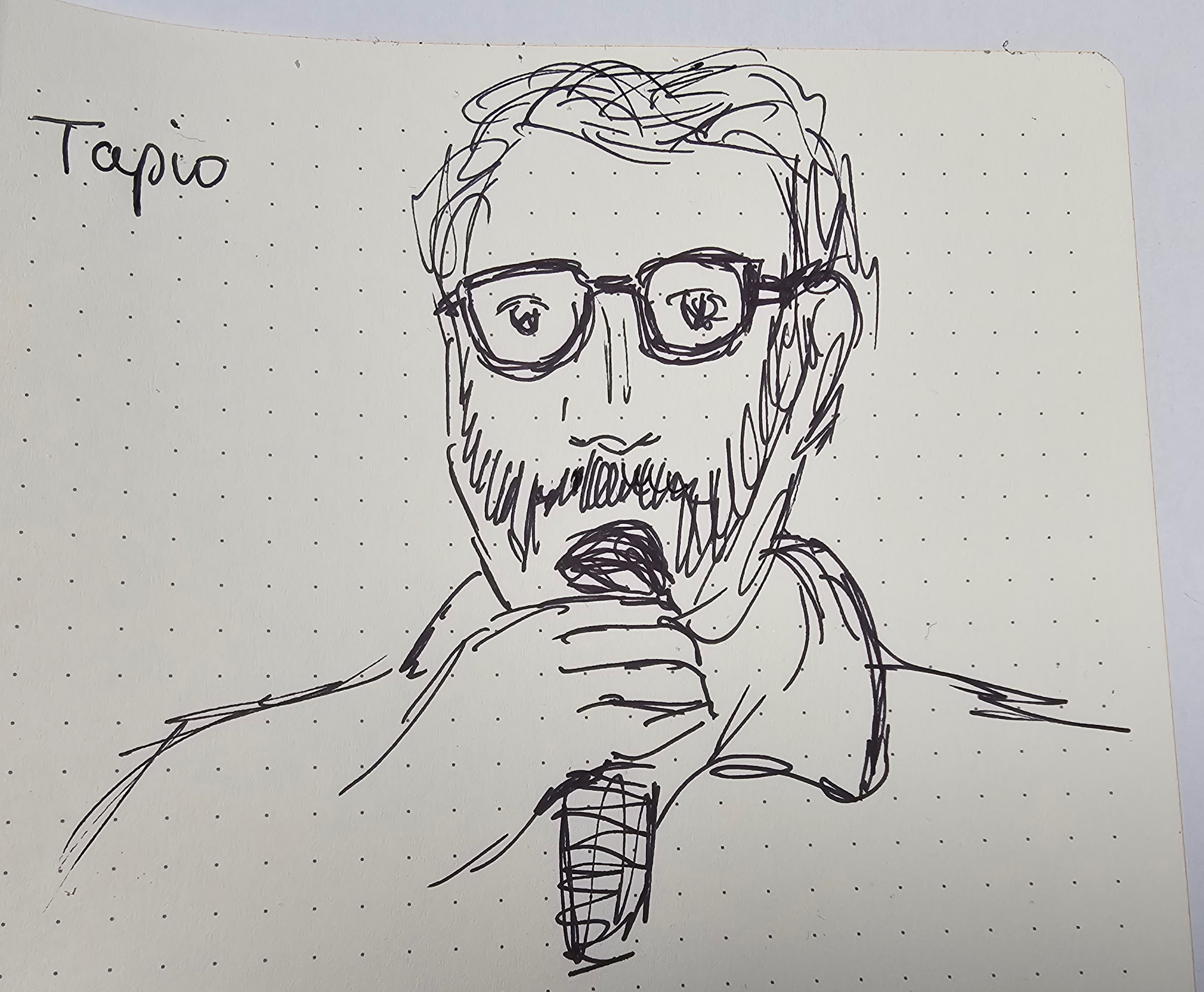
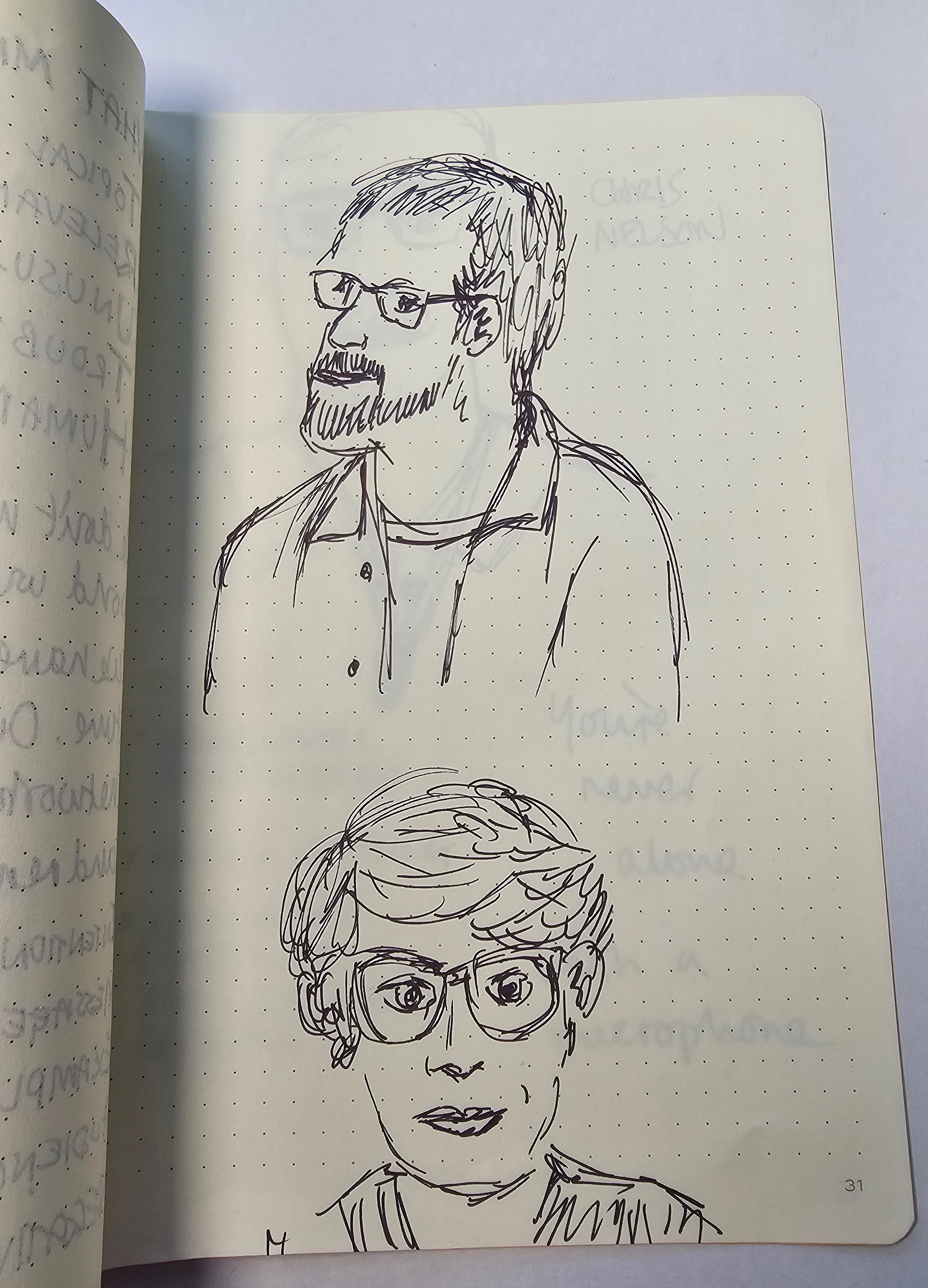
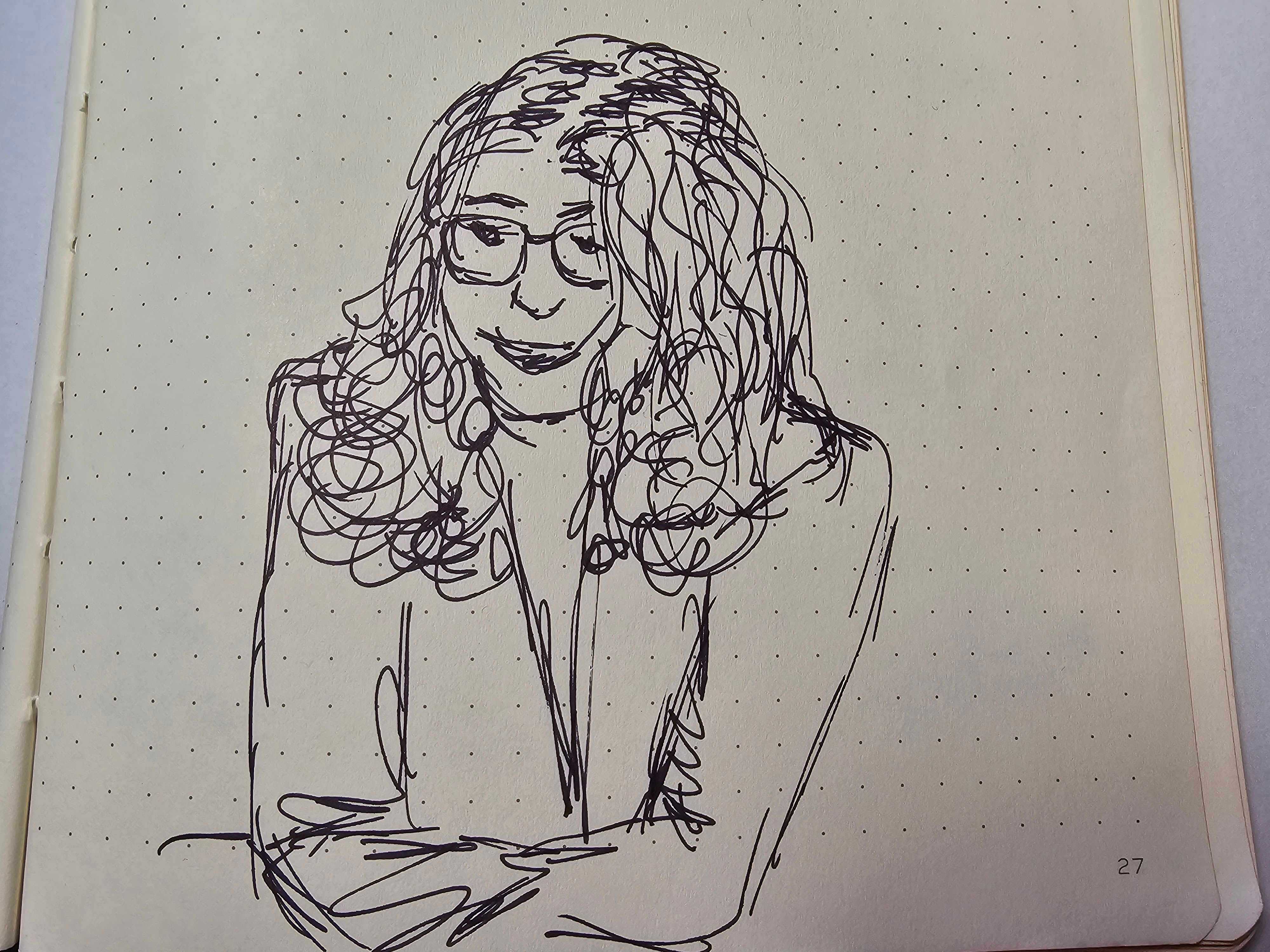
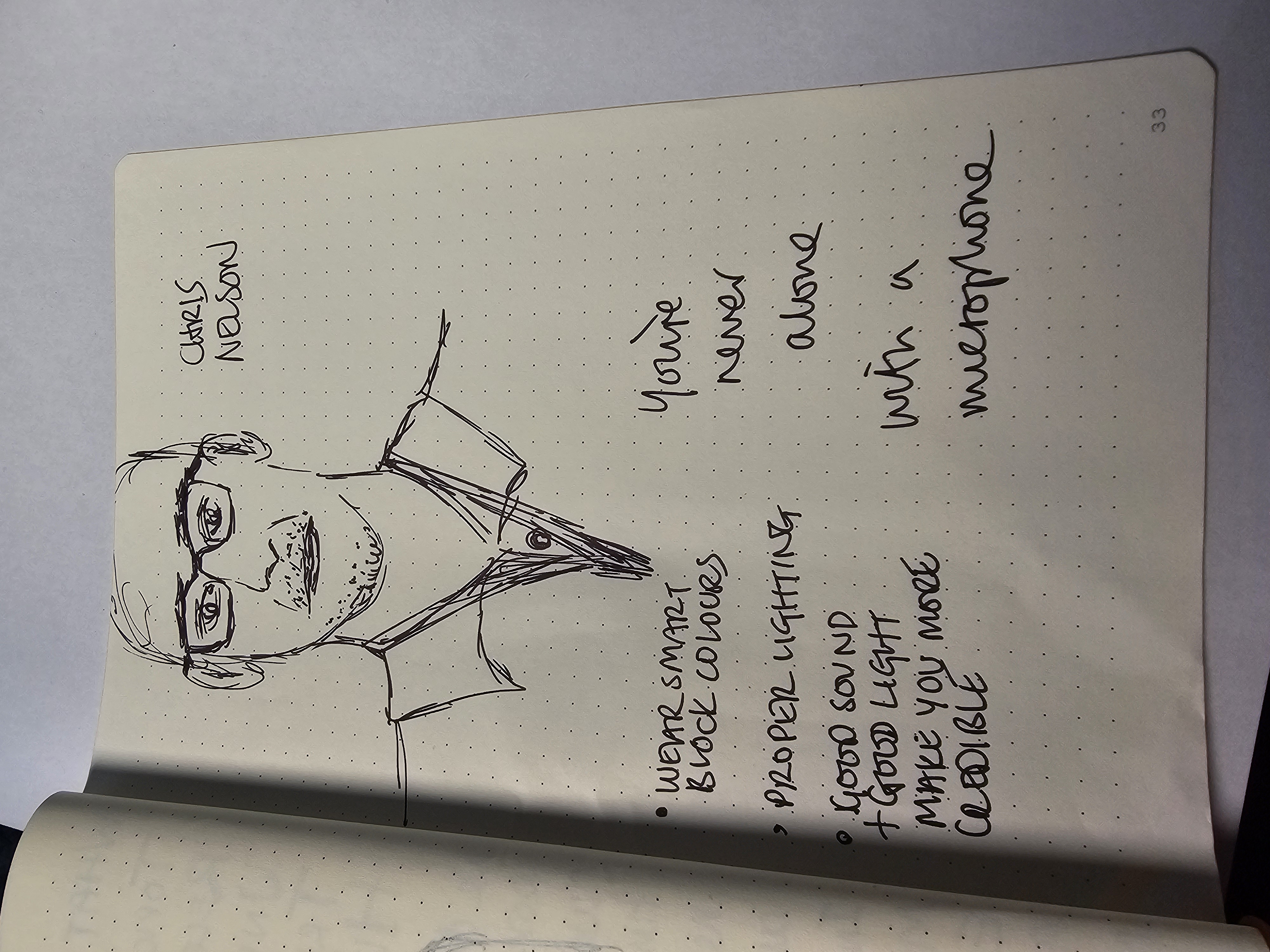
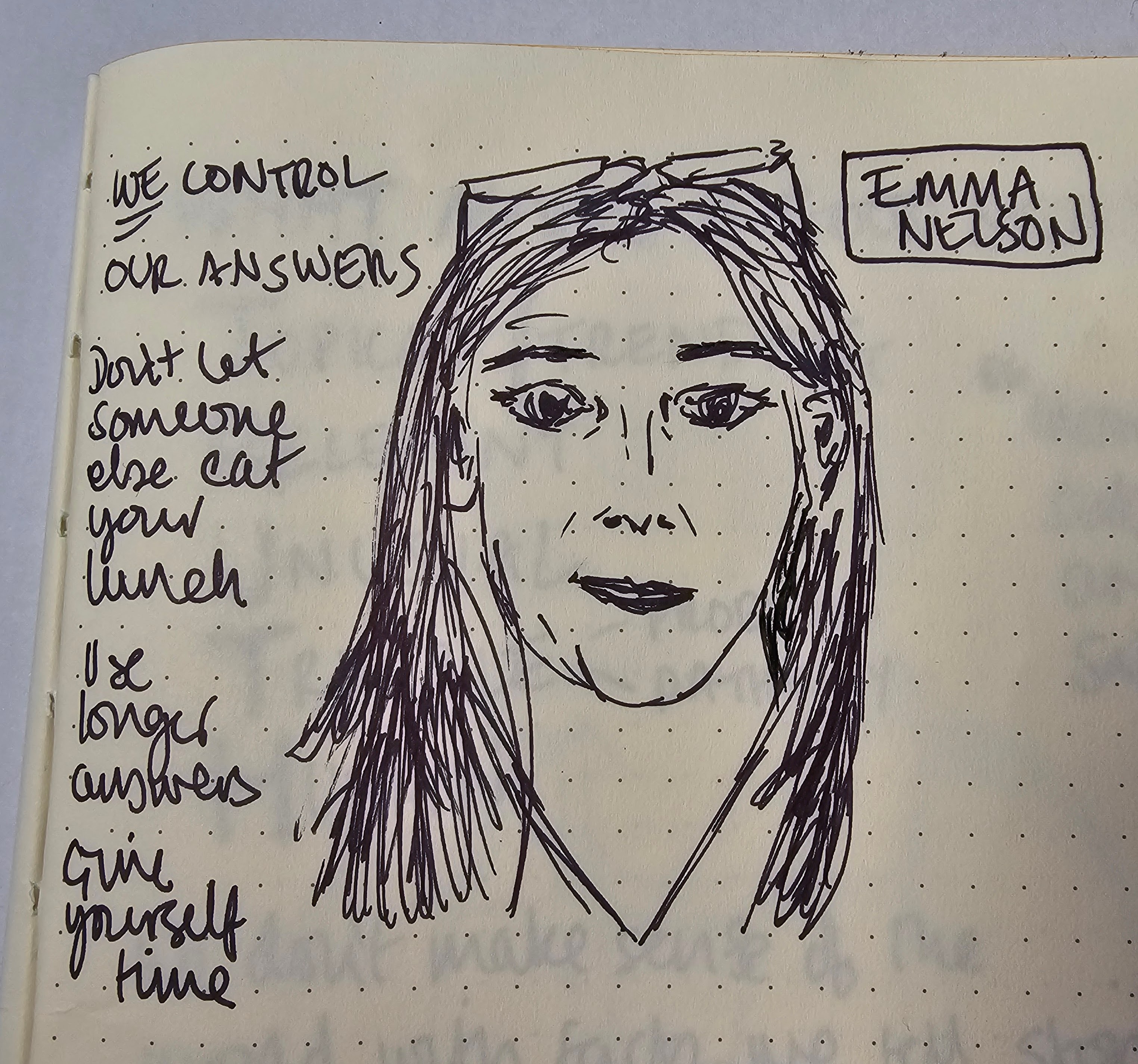
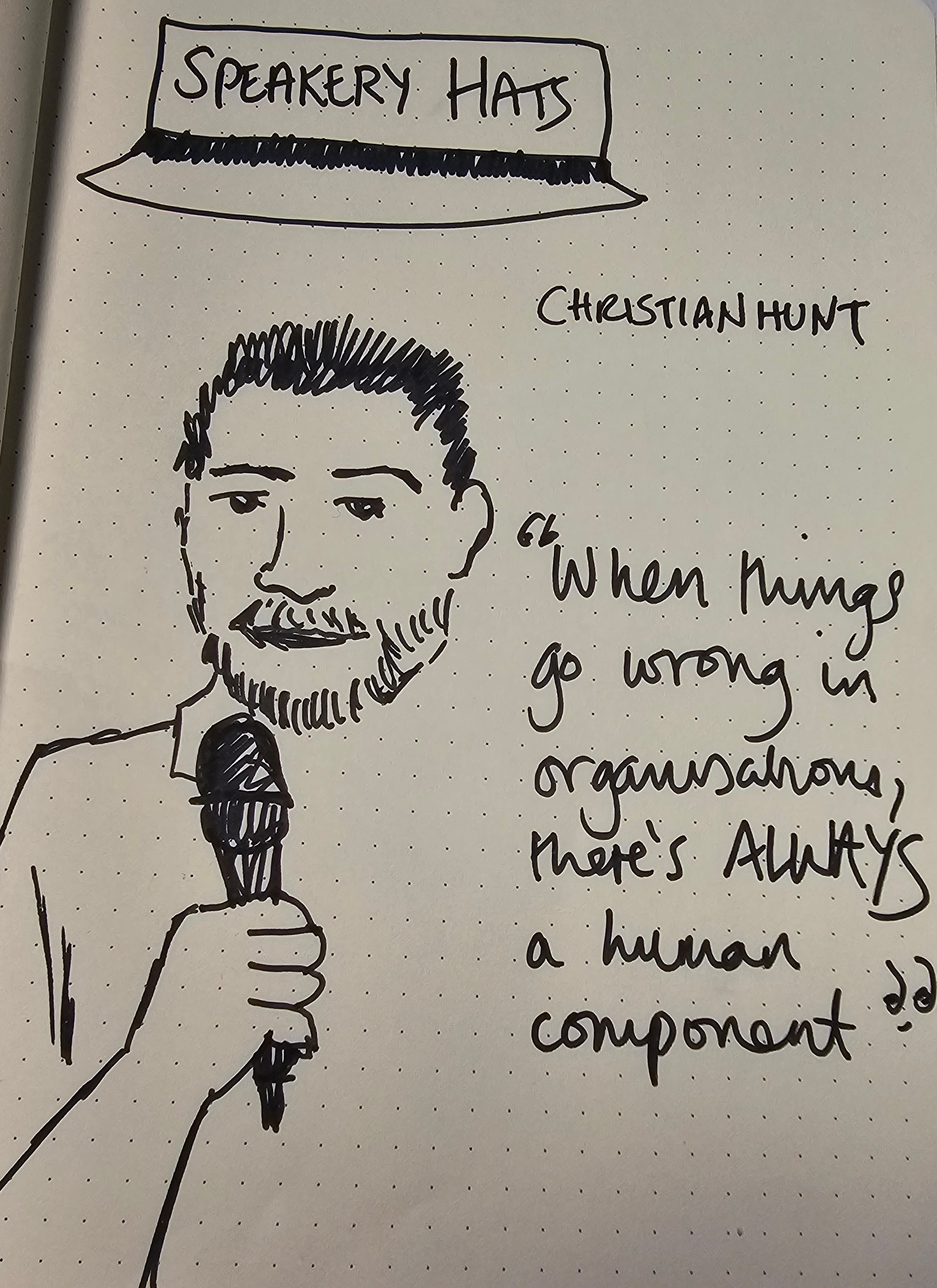
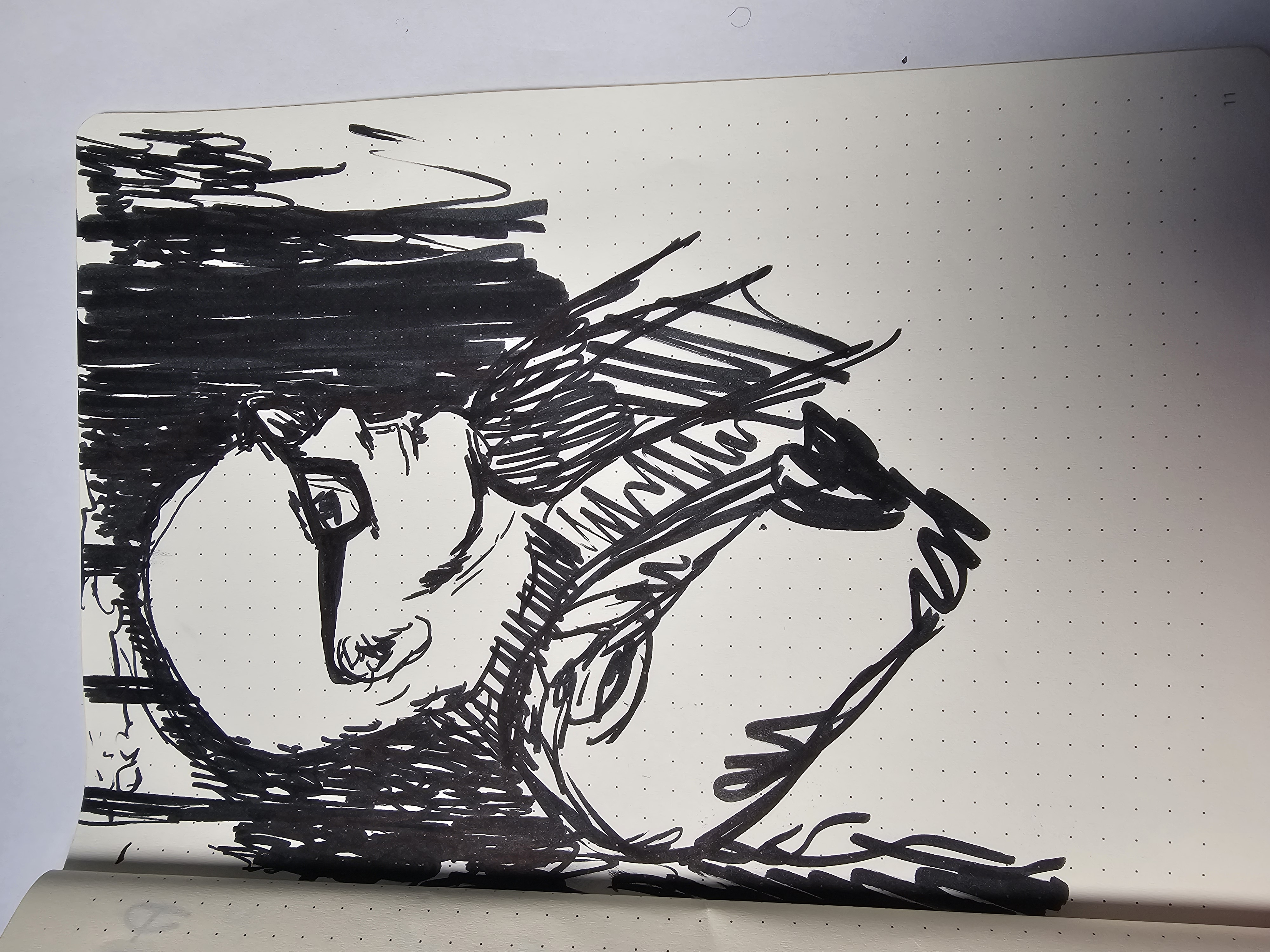
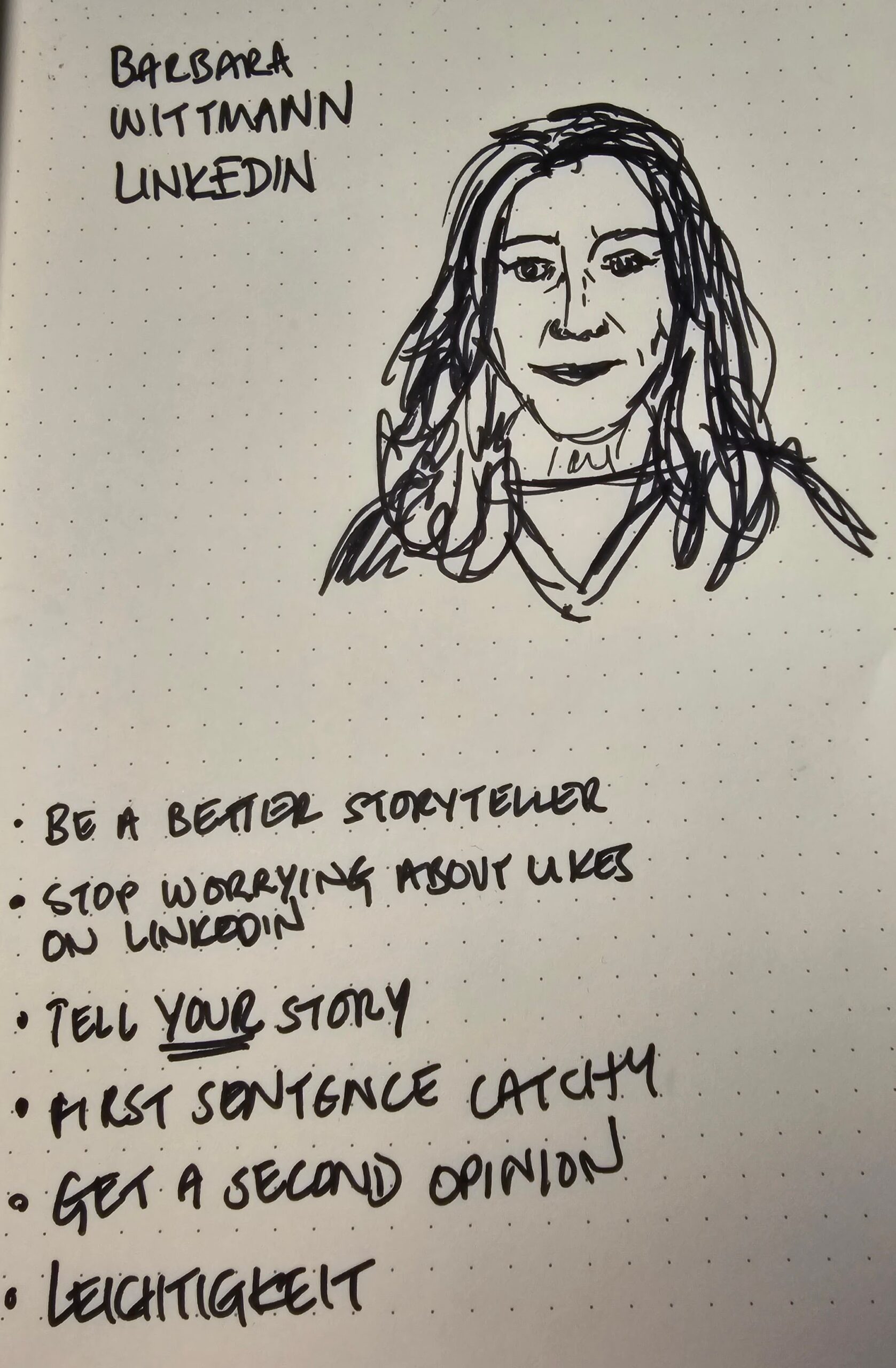
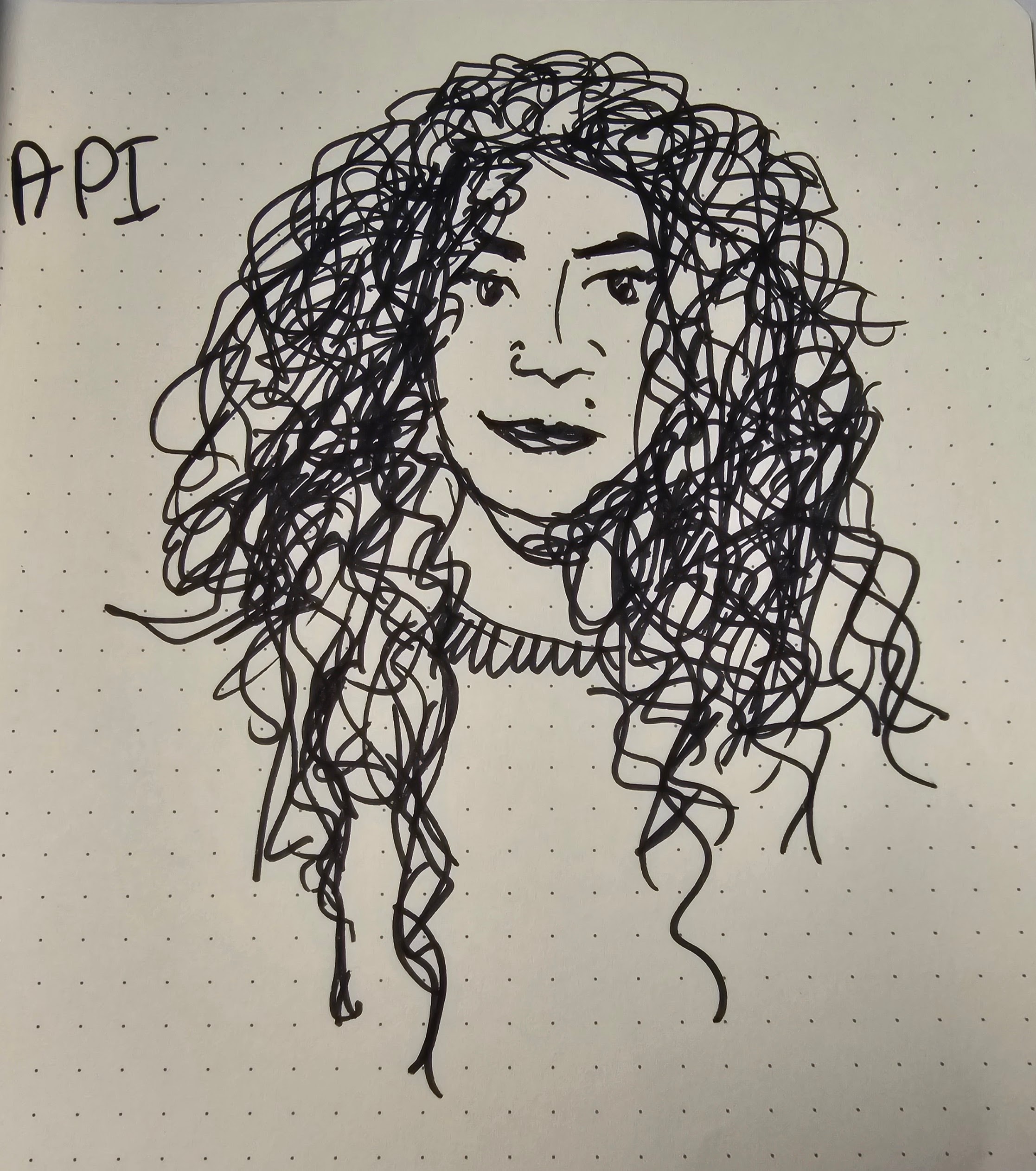
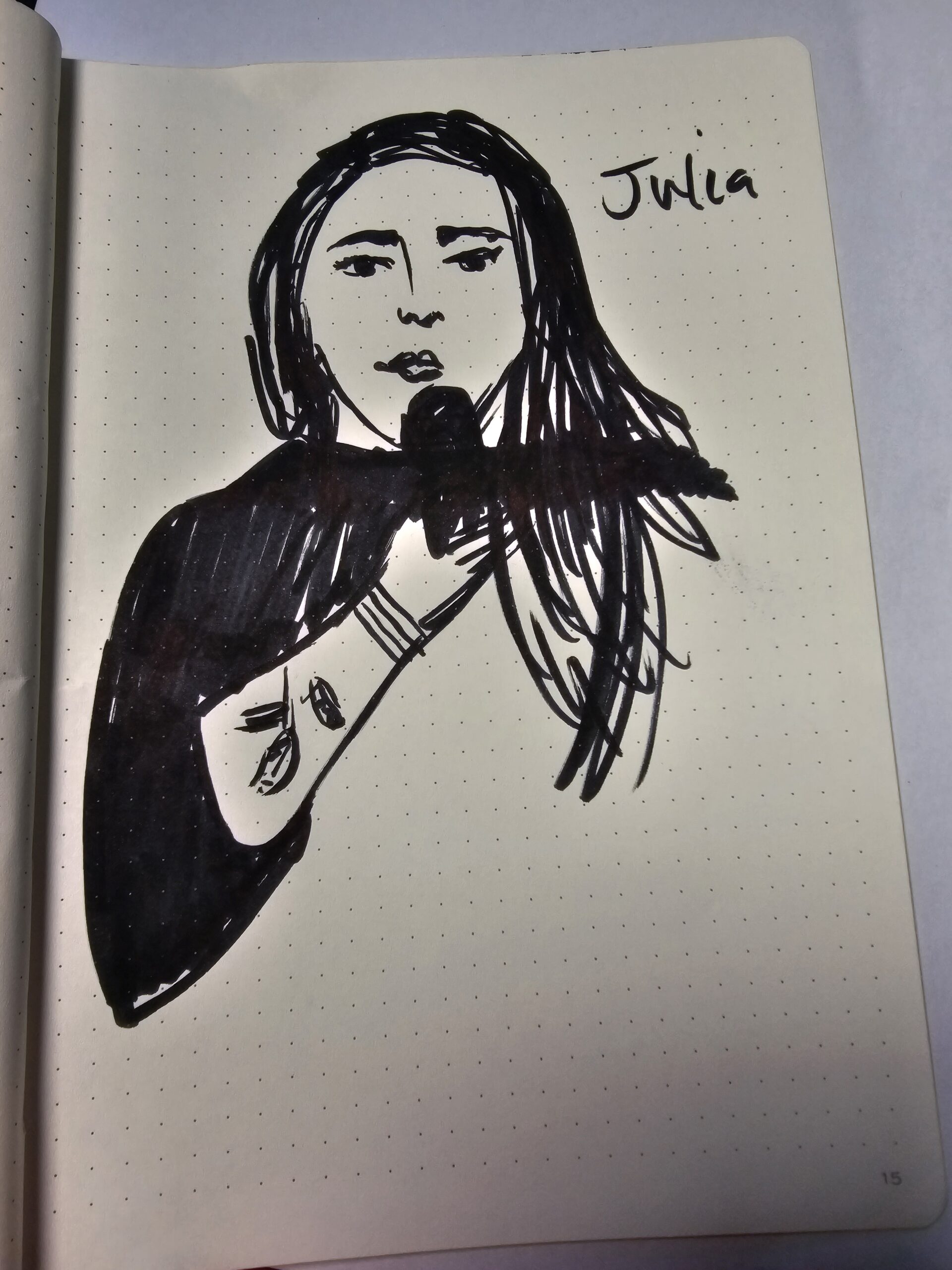
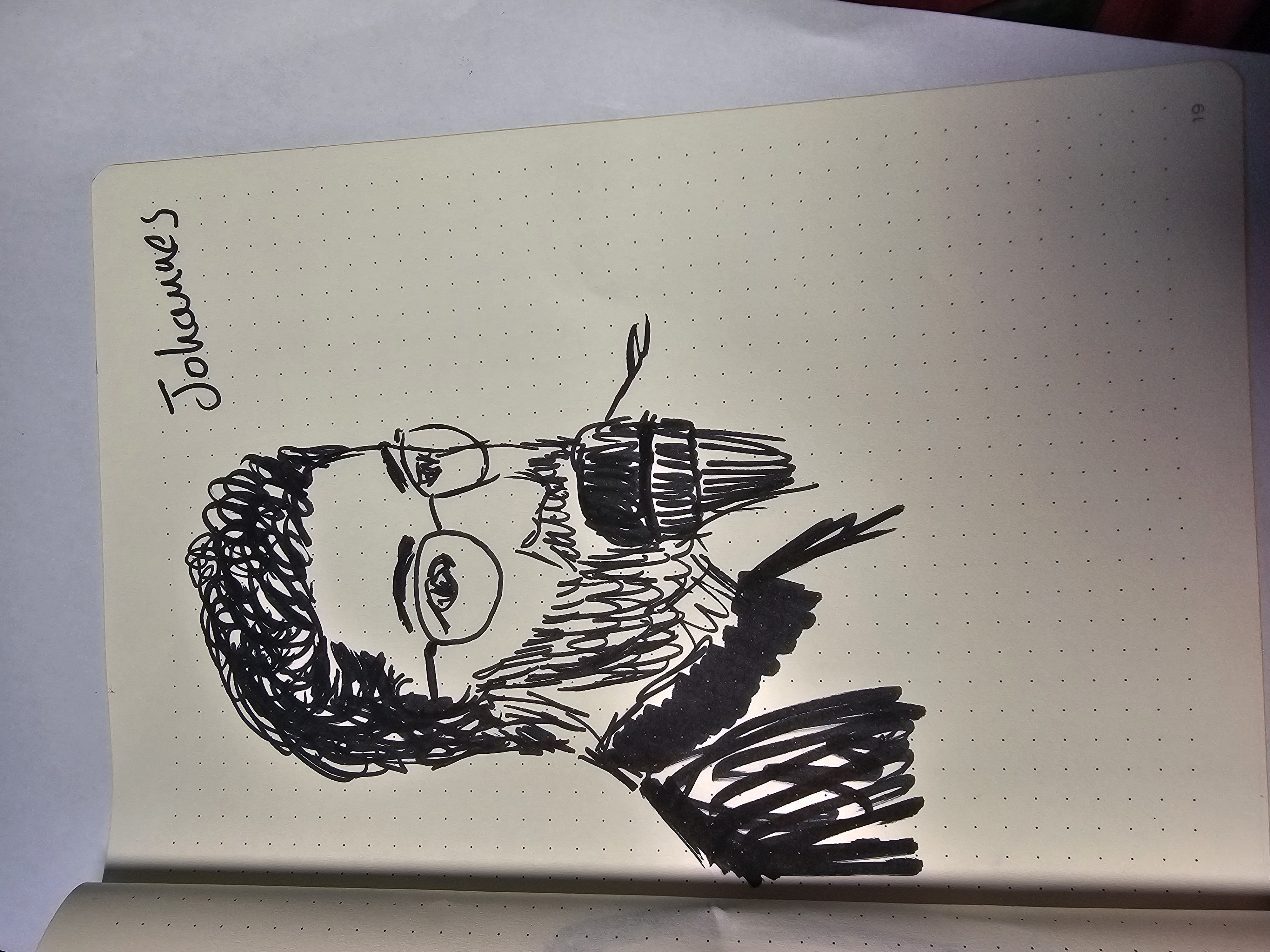
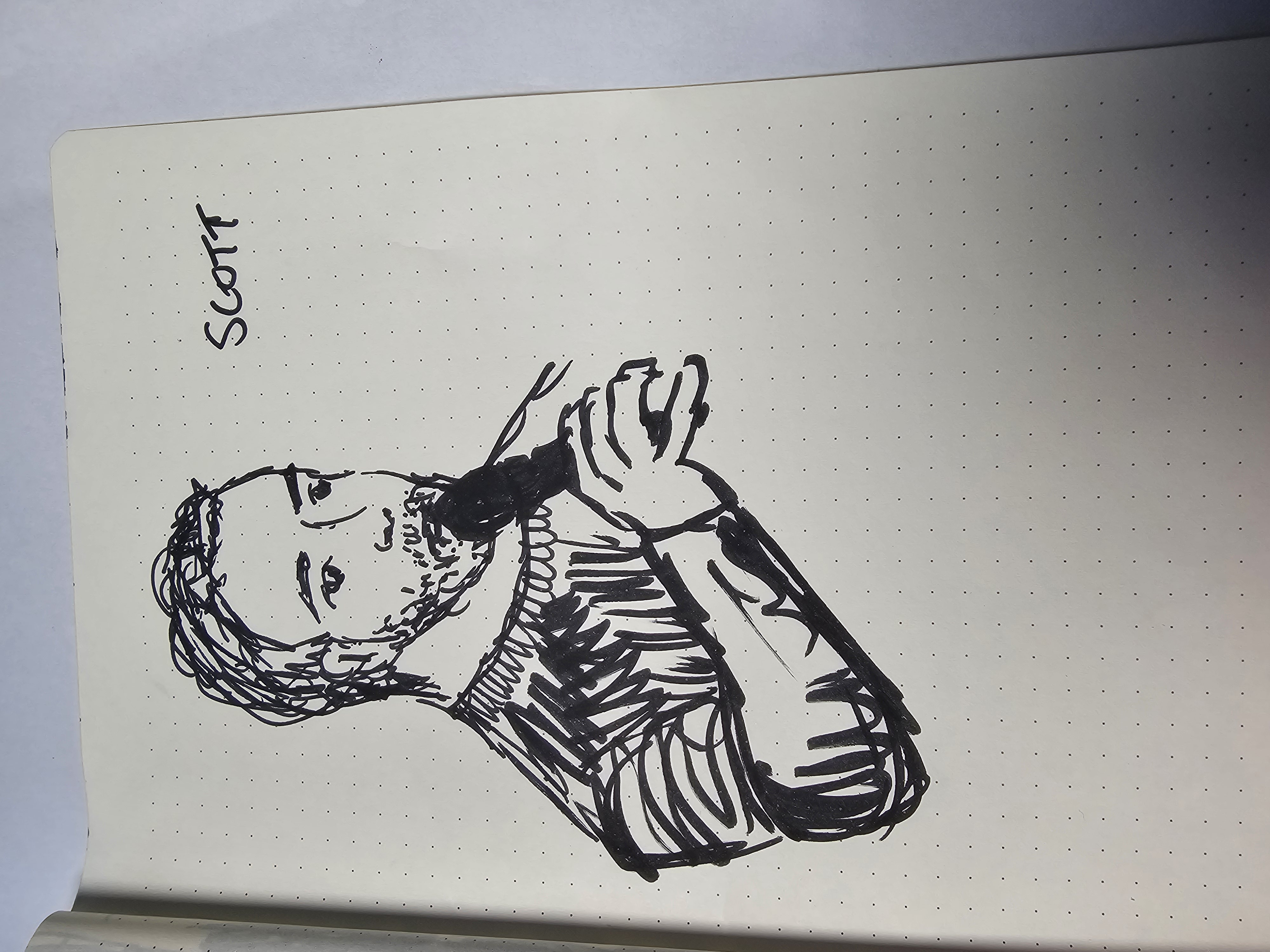
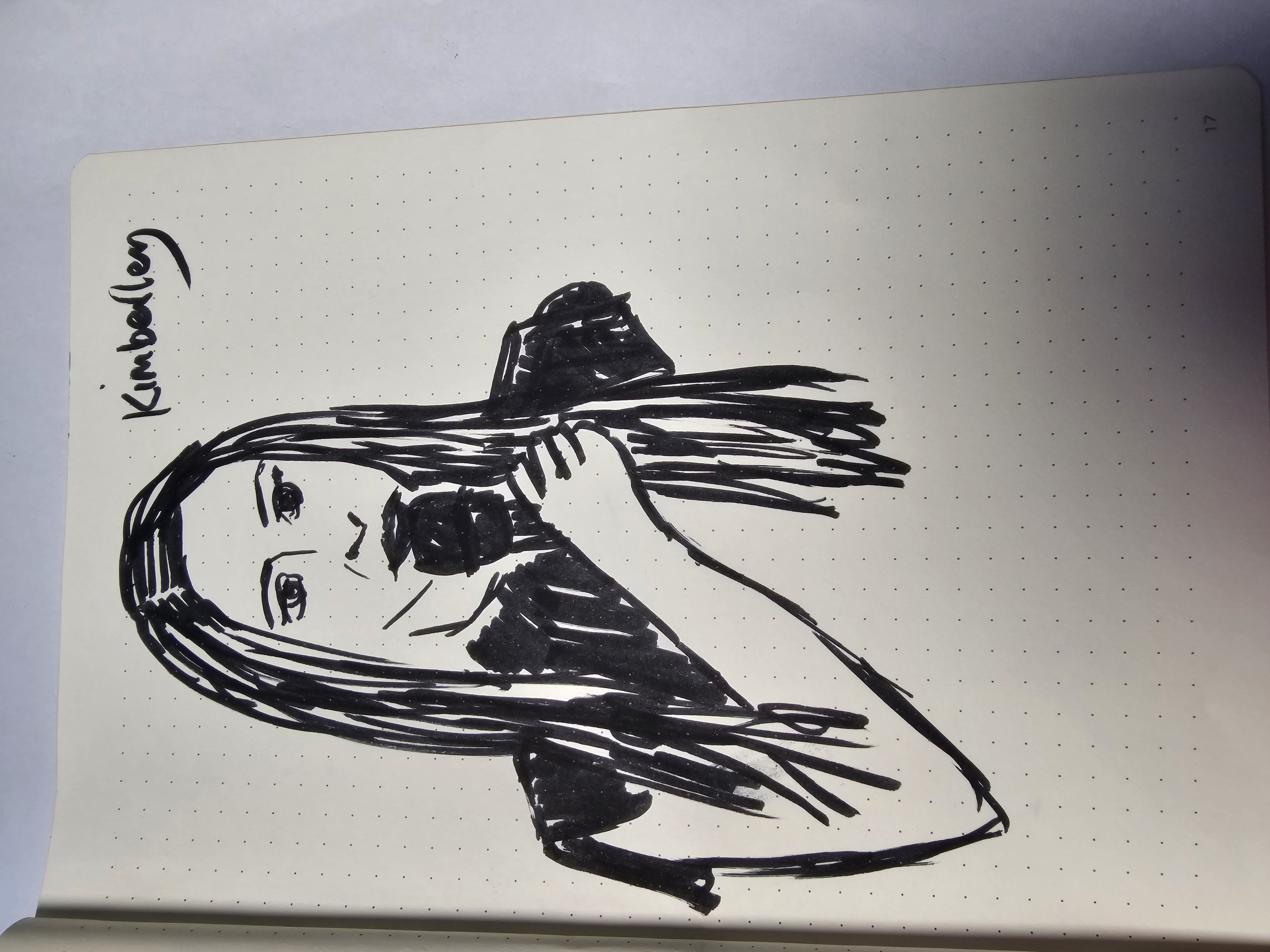
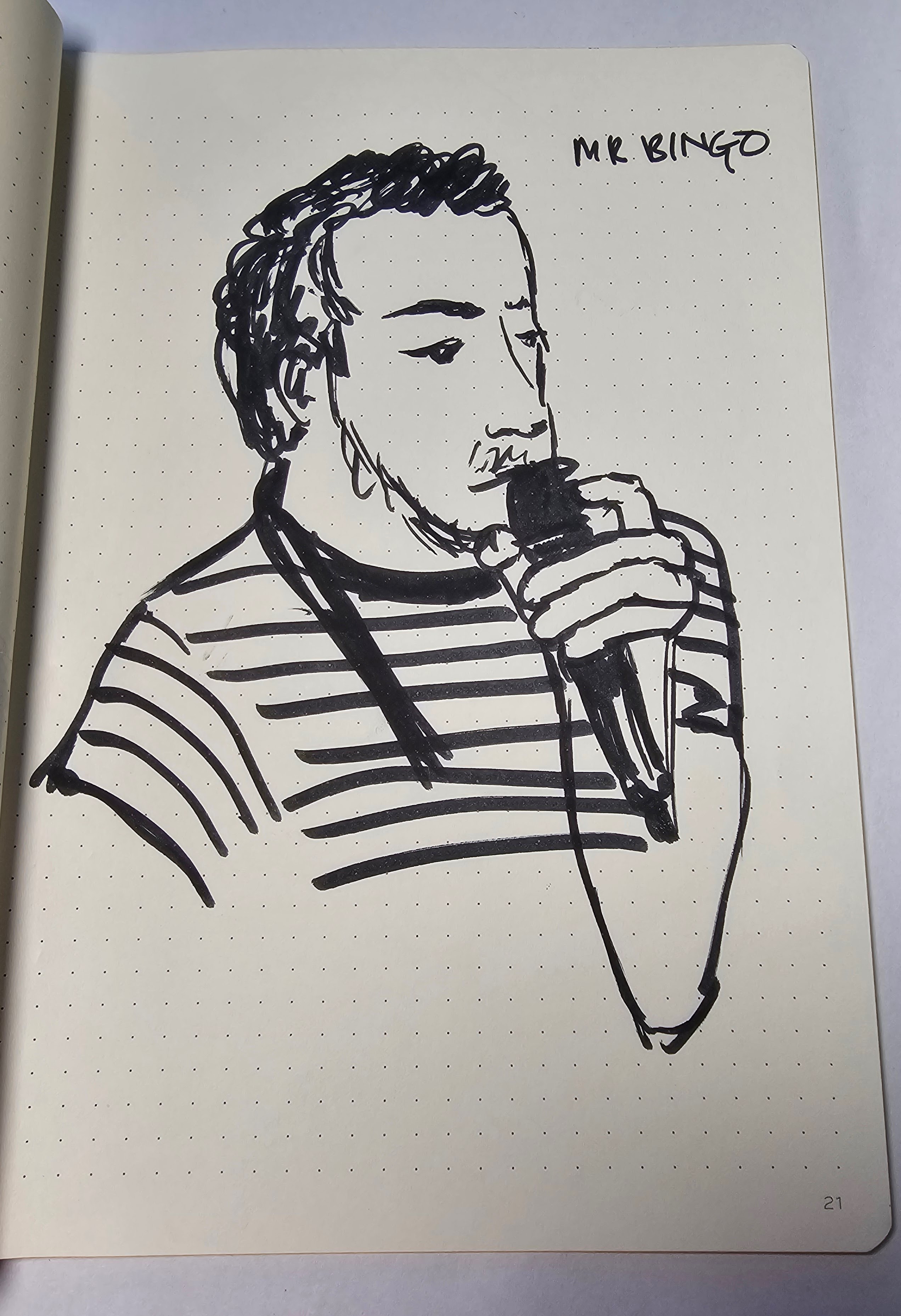
My favourite pictures from Sascha
Sascha Bartel is brilliant and these are some of my favourite pics that also happen to feature me.
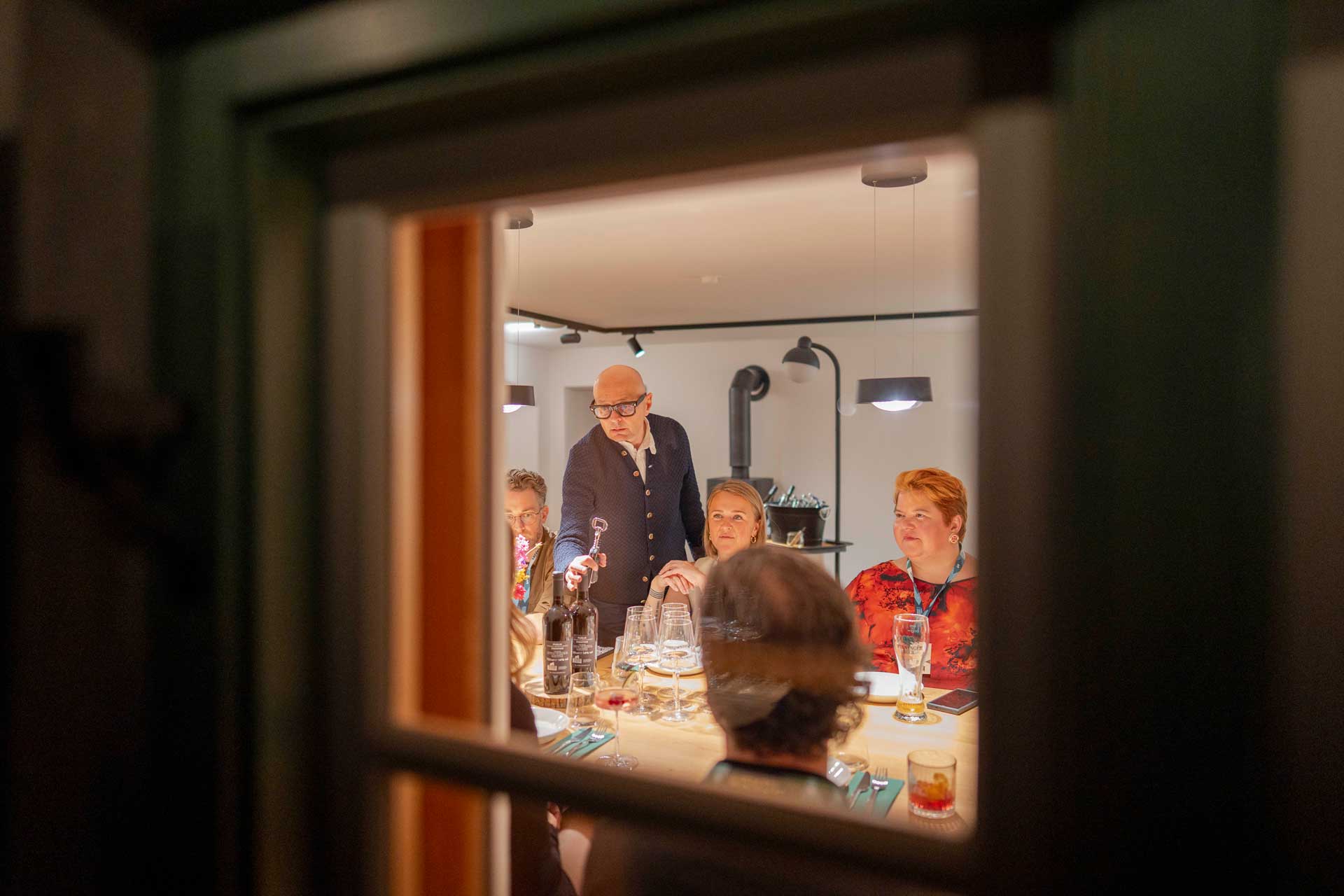
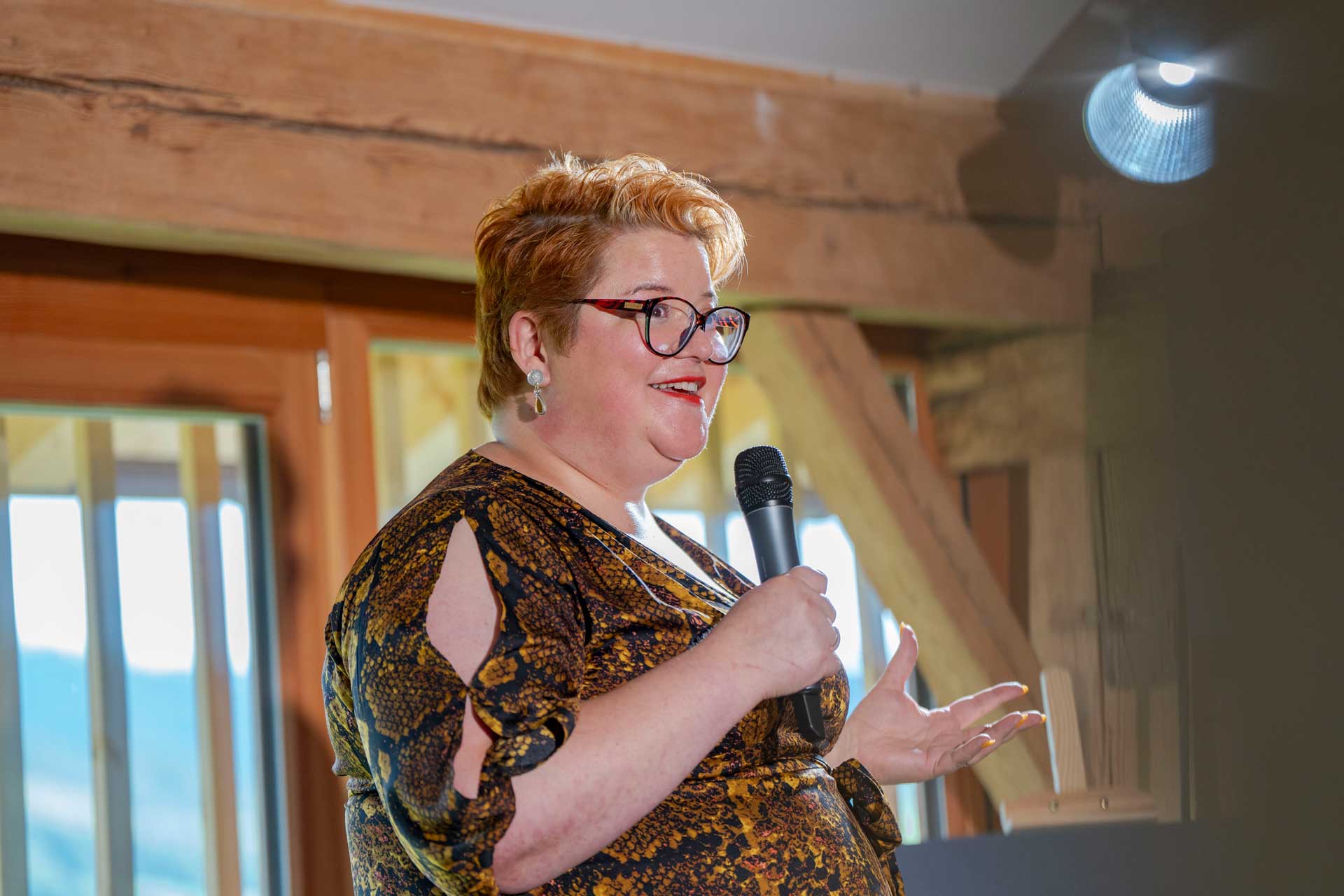
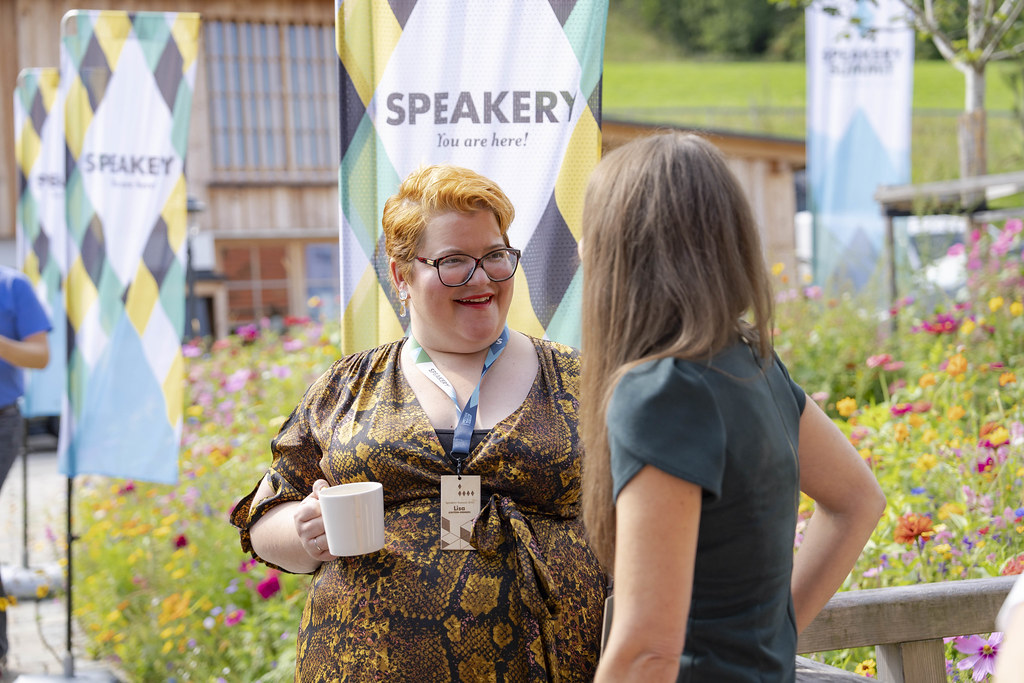
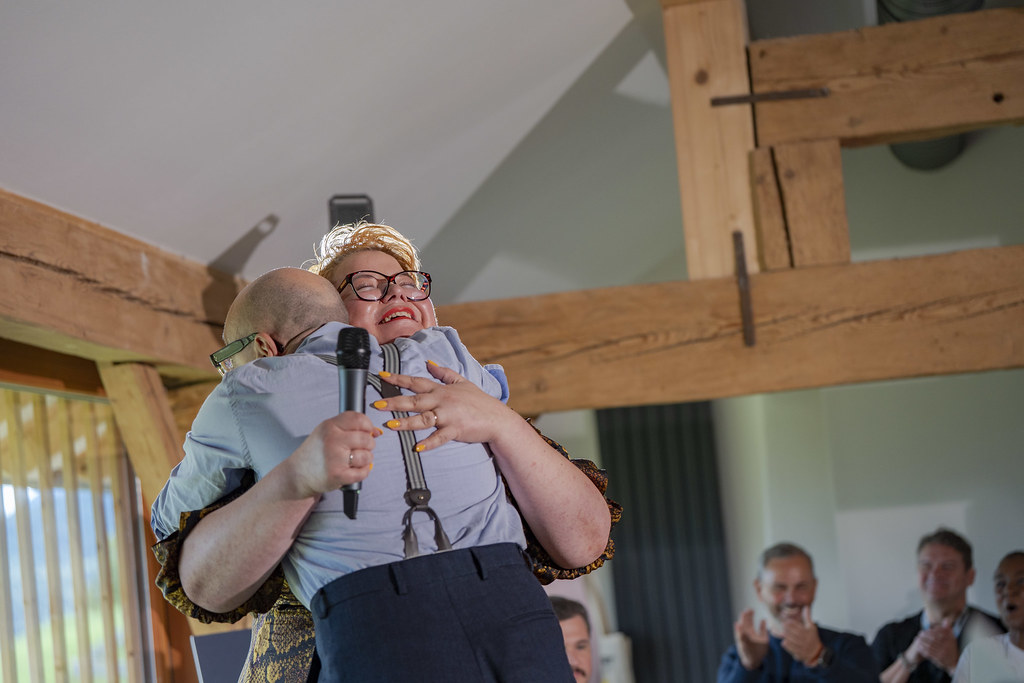
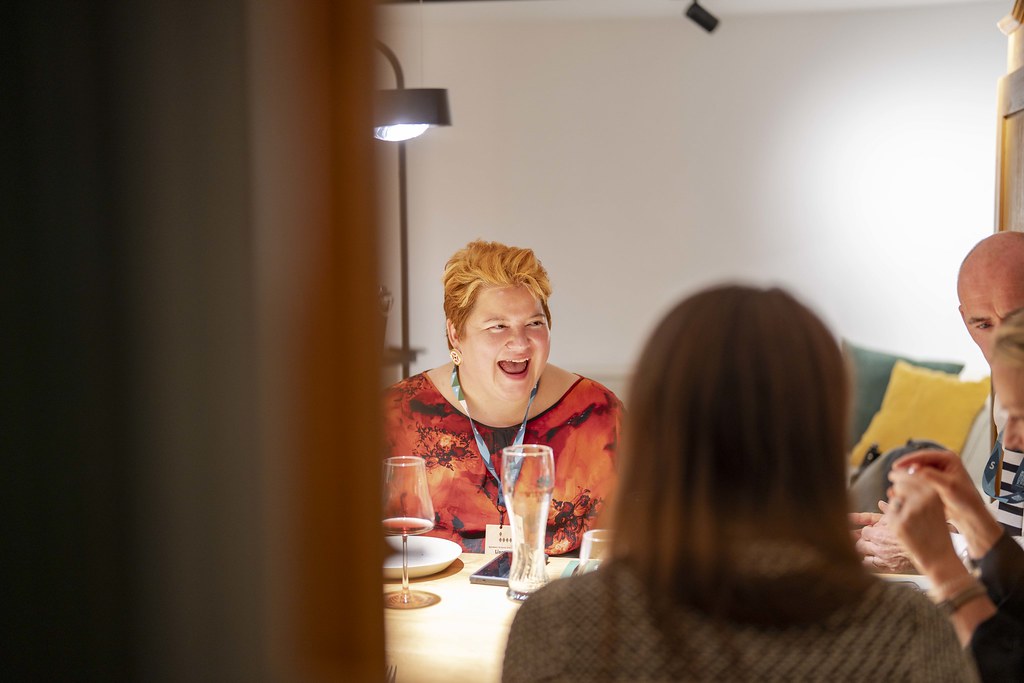
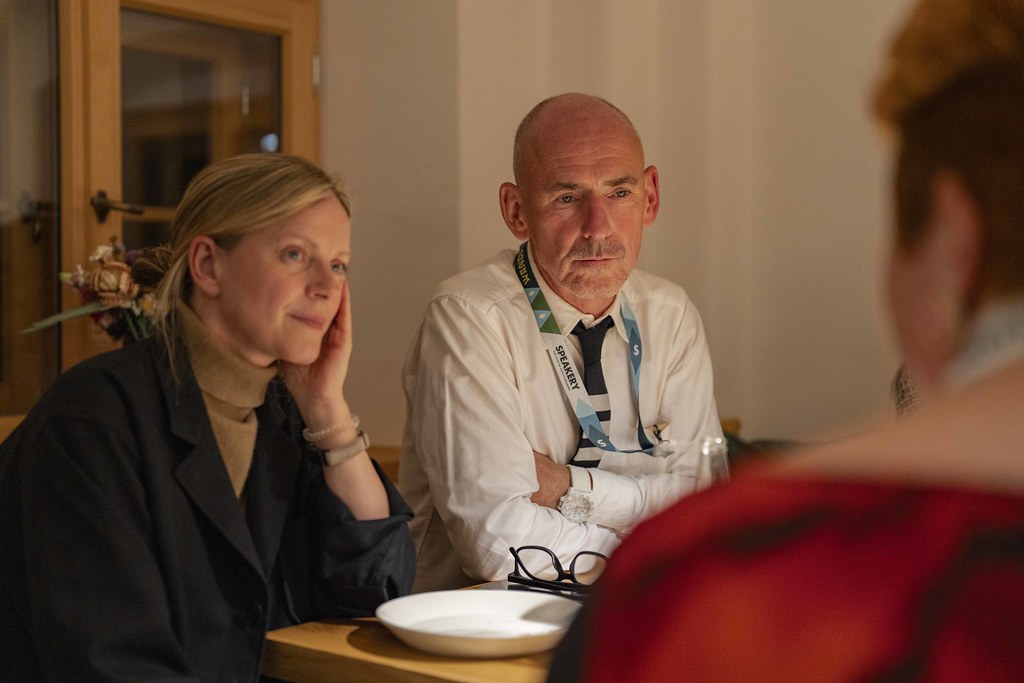
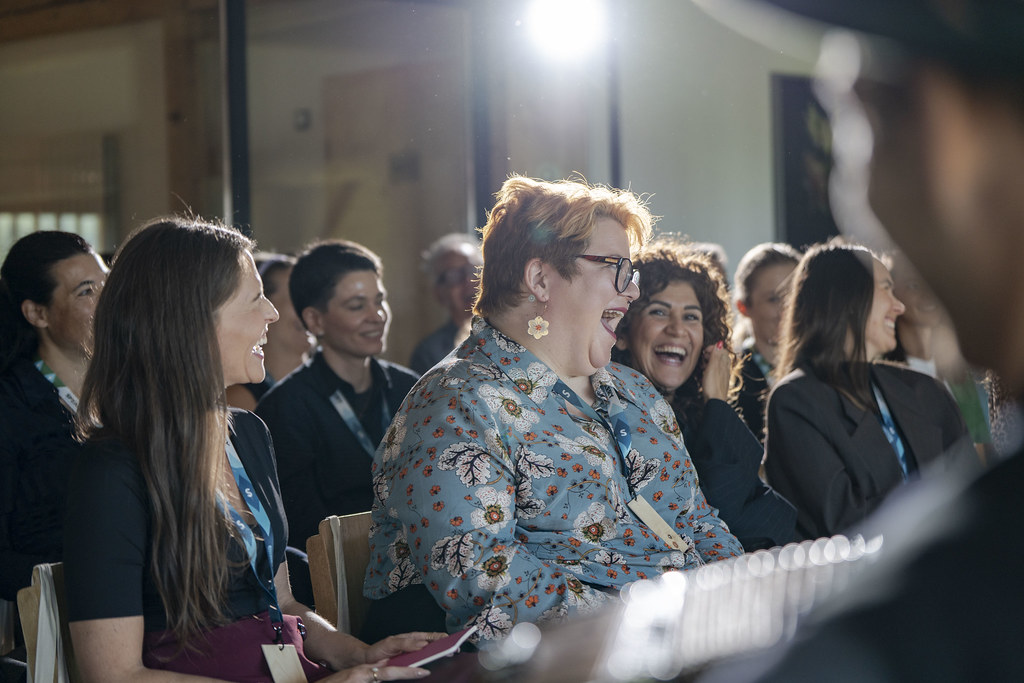
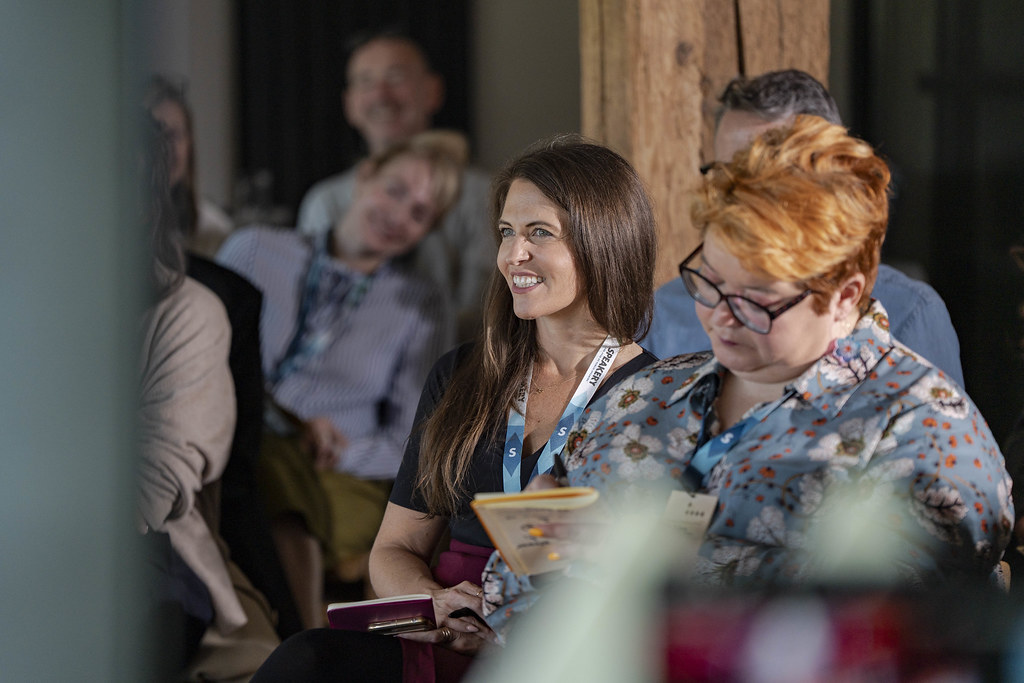
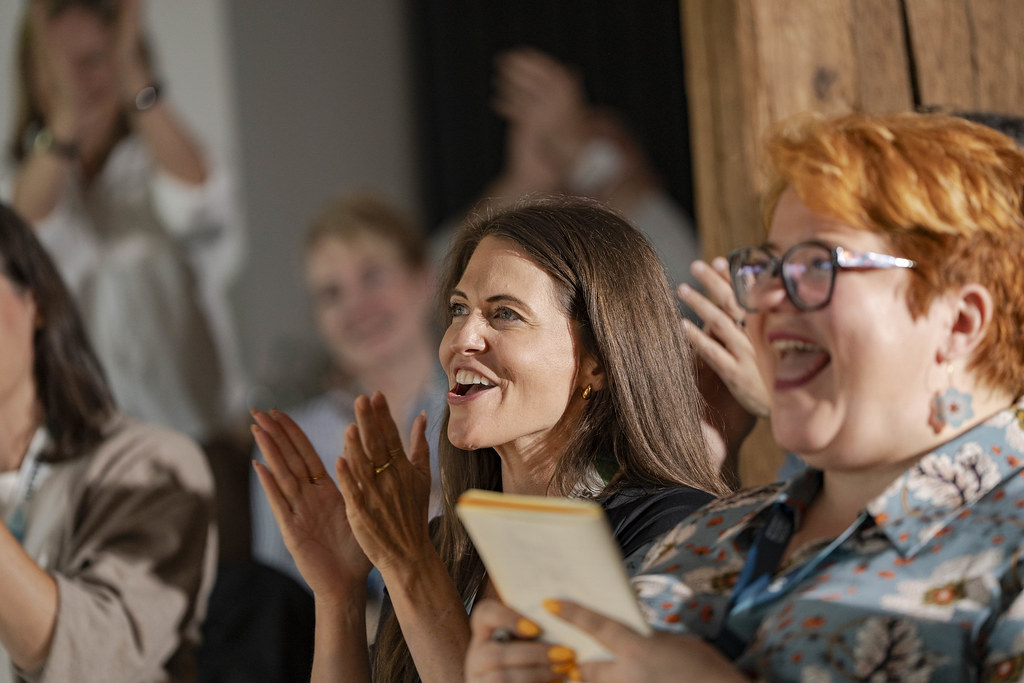
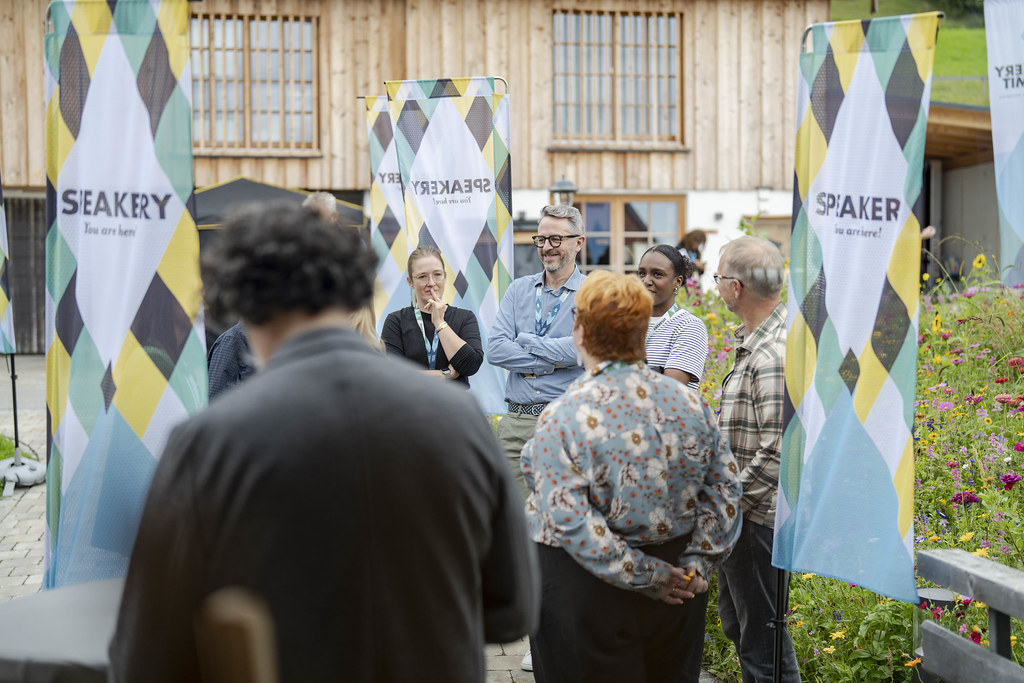
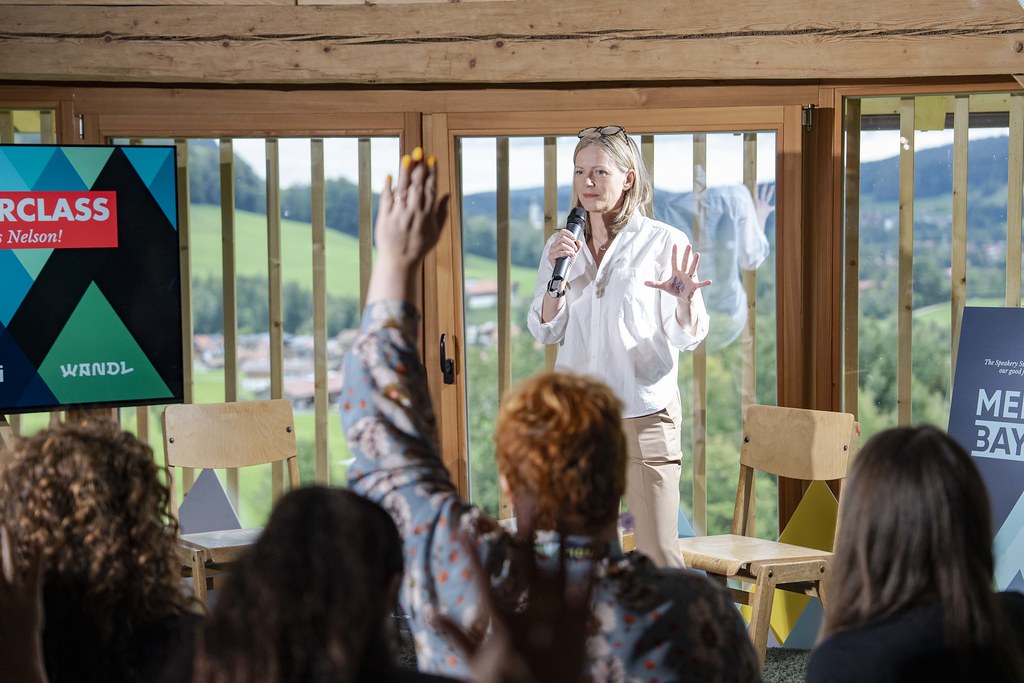
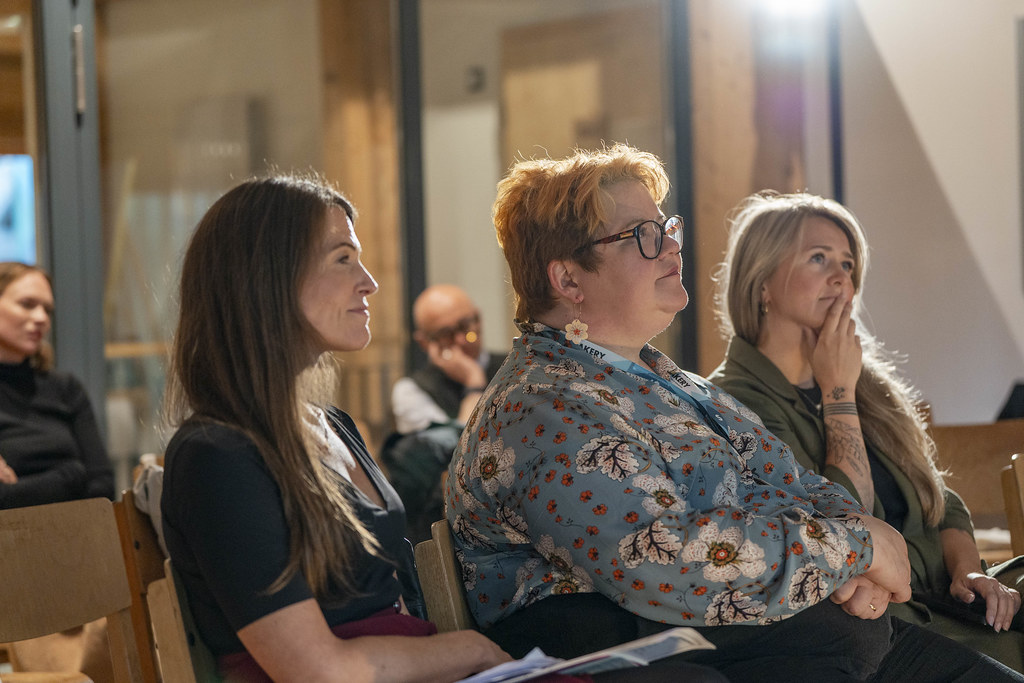
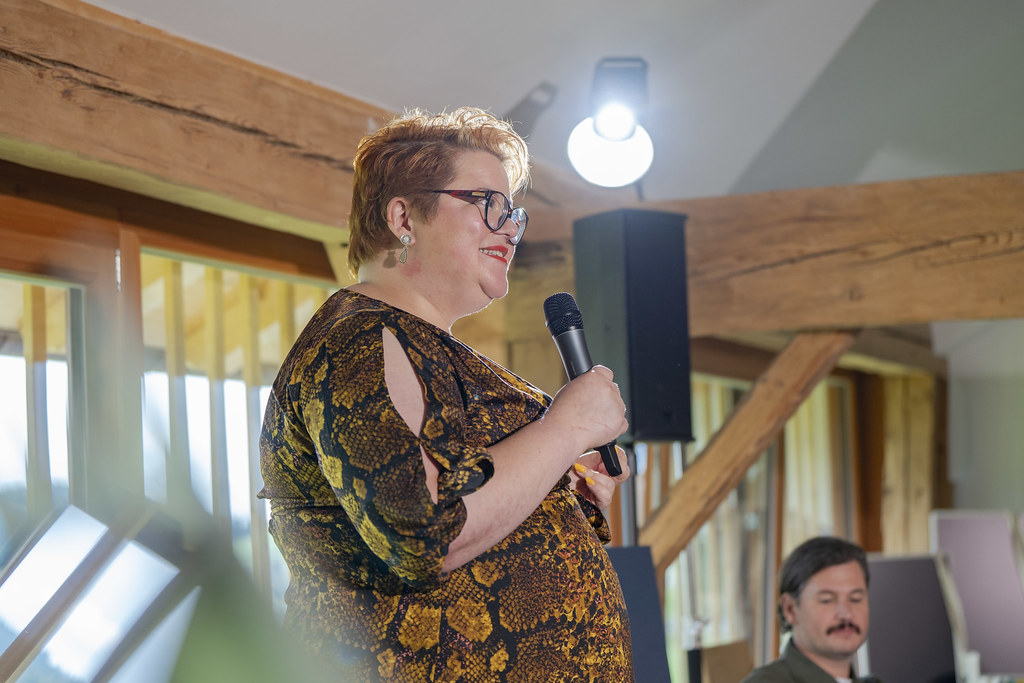
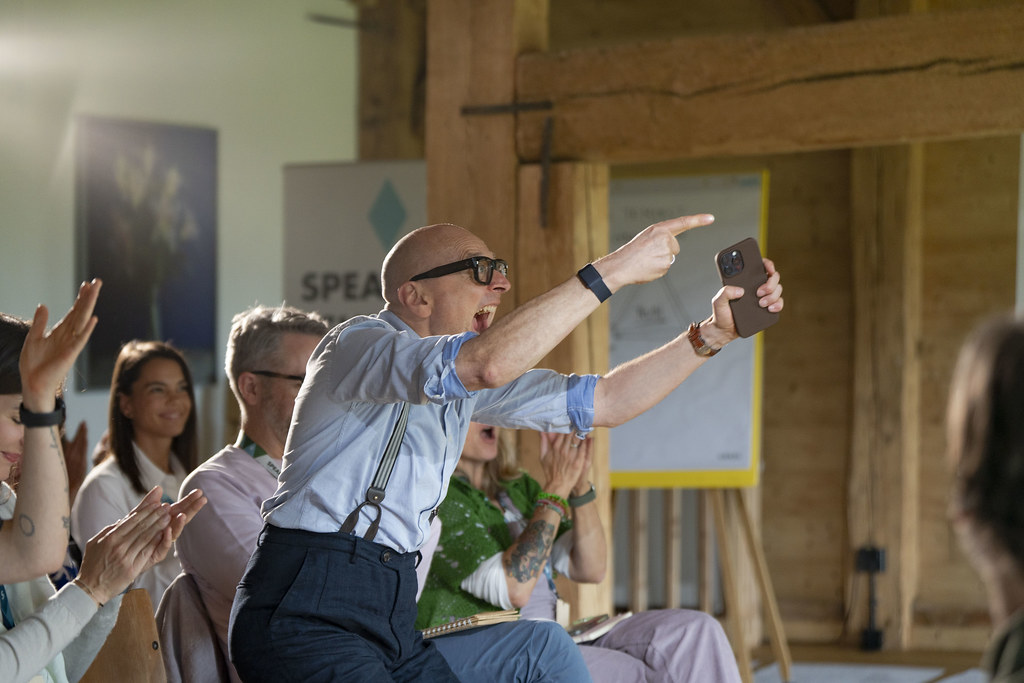
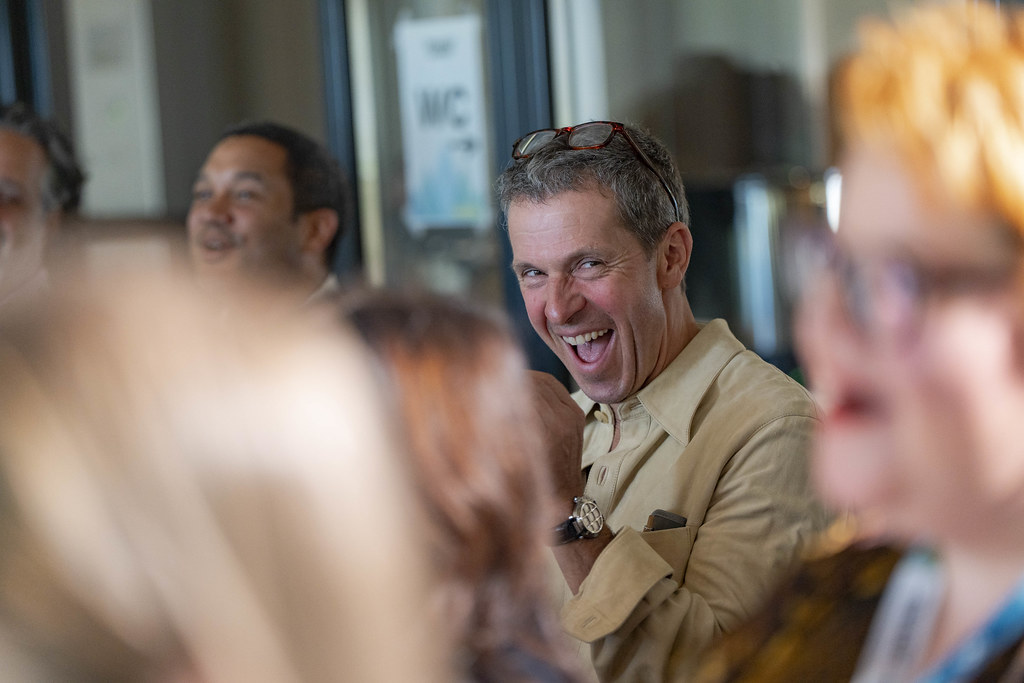
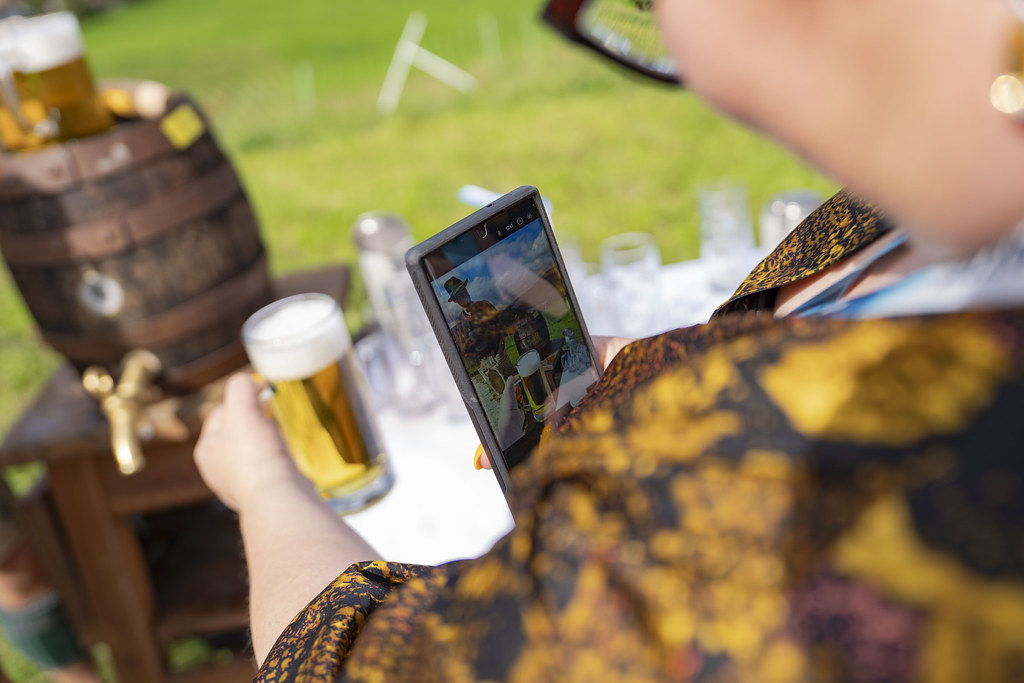
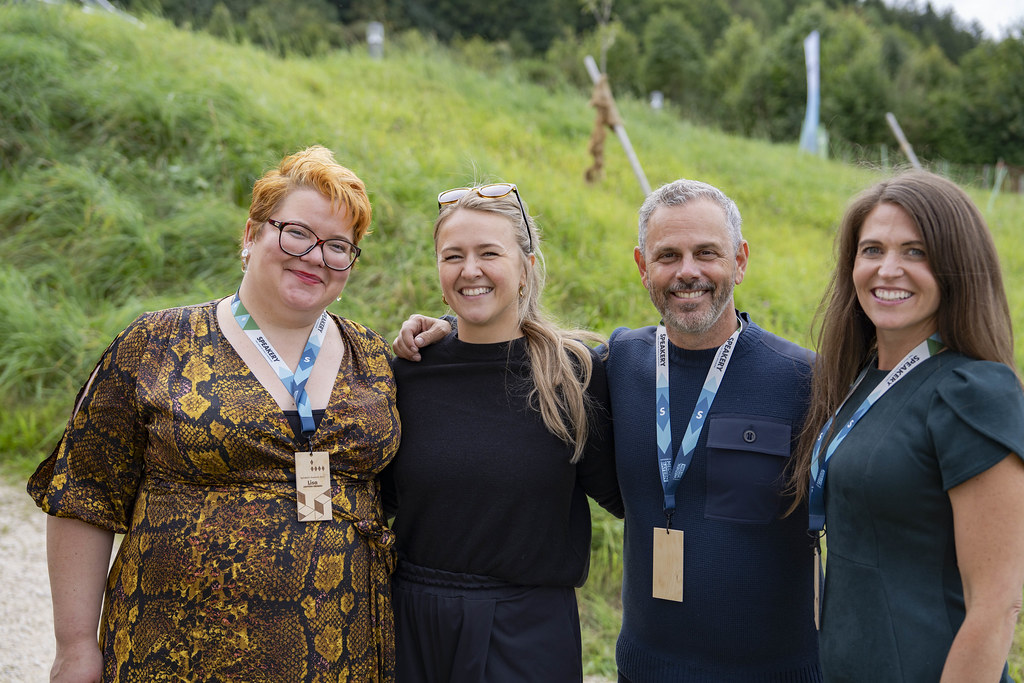
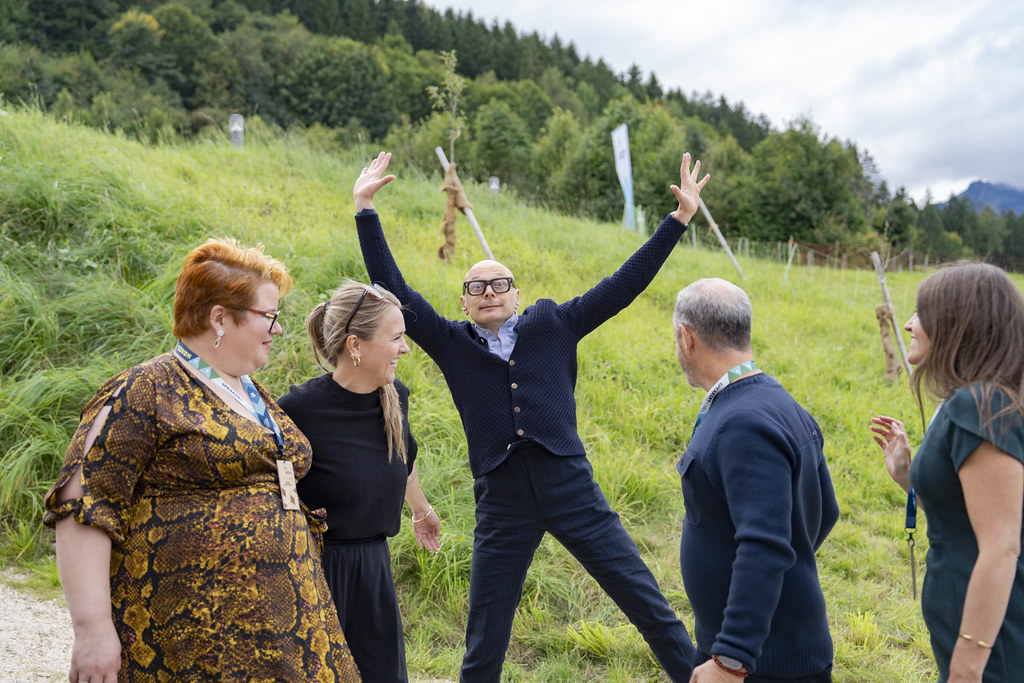
Here are some of my snaps too
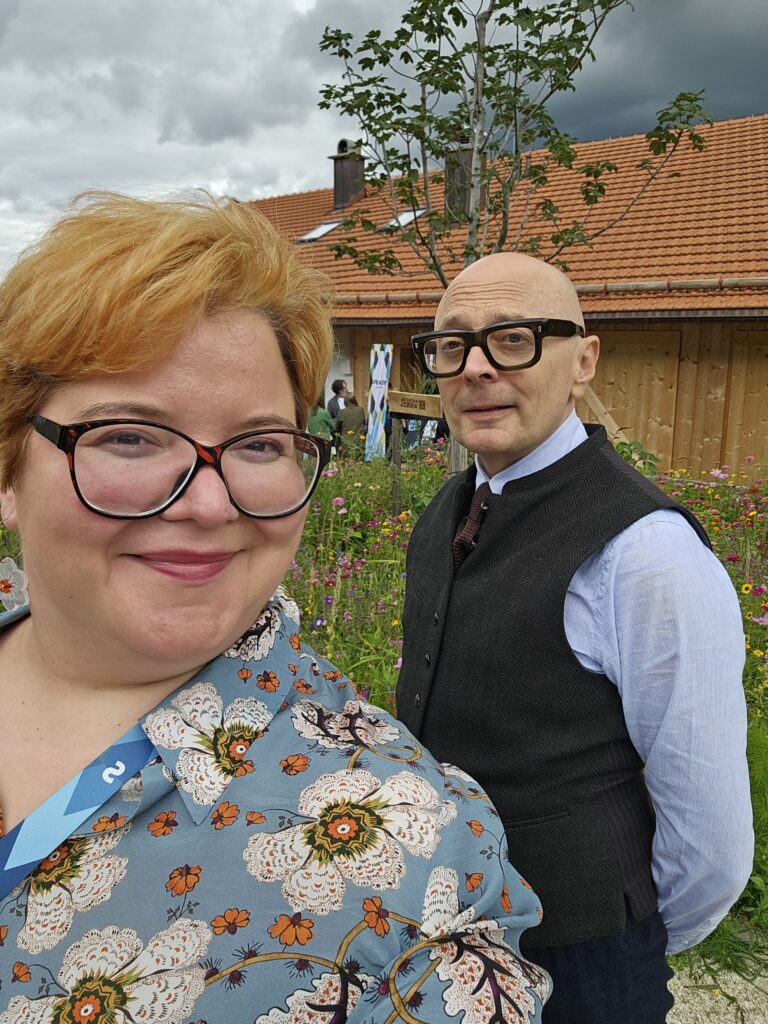
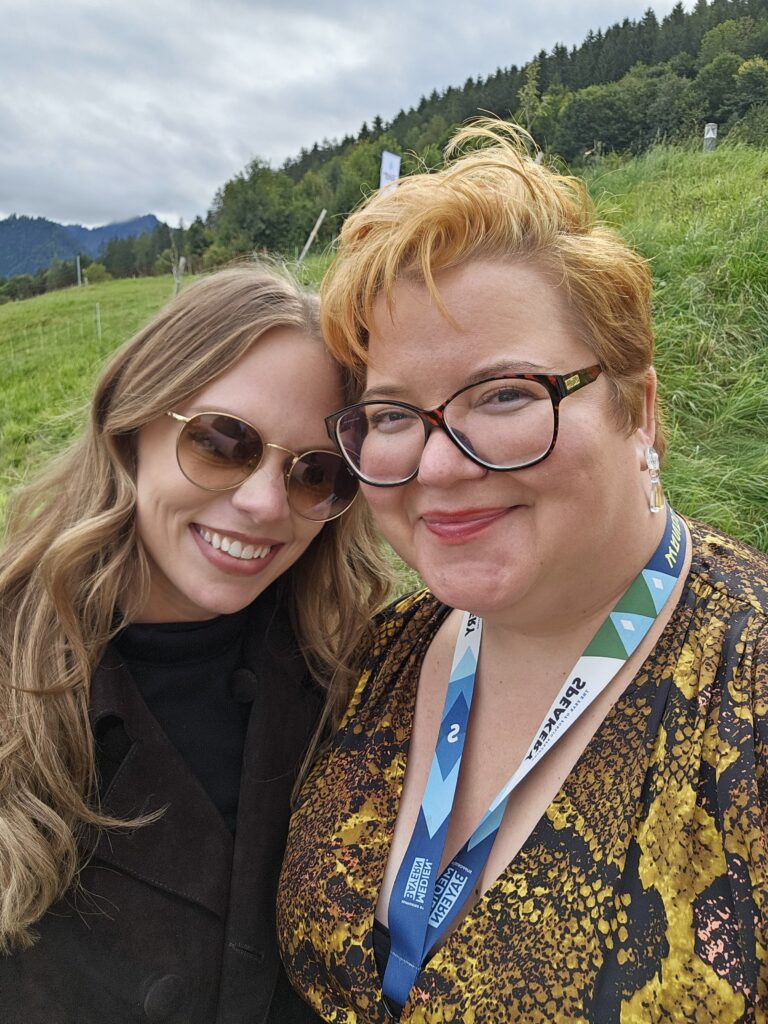
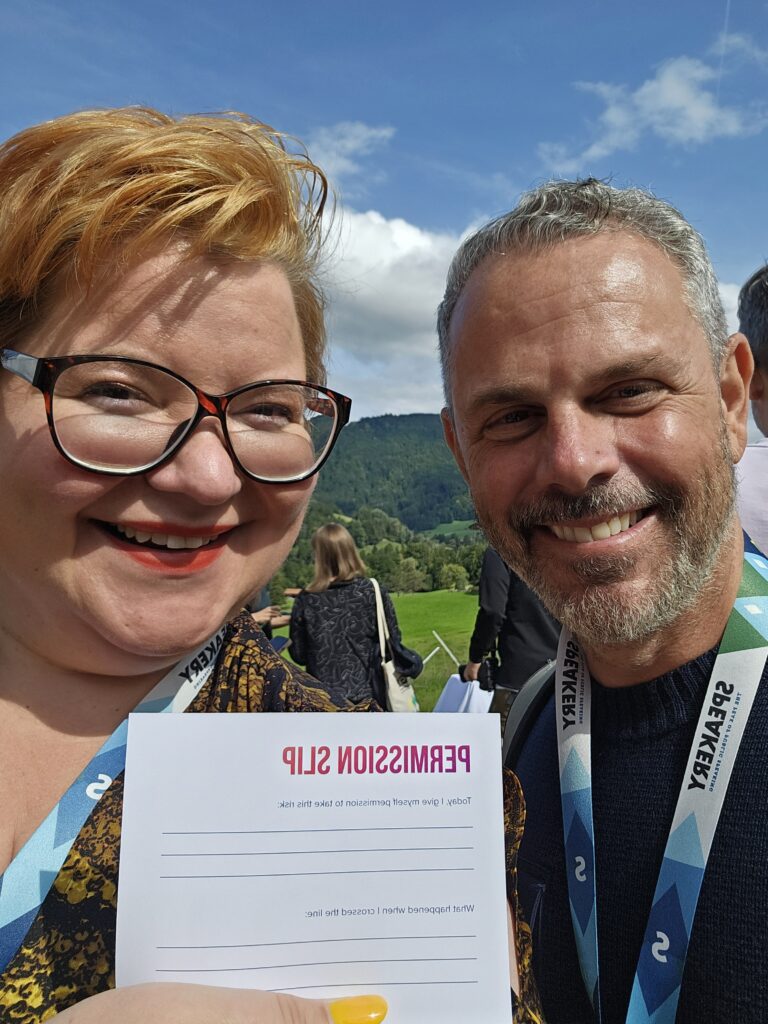
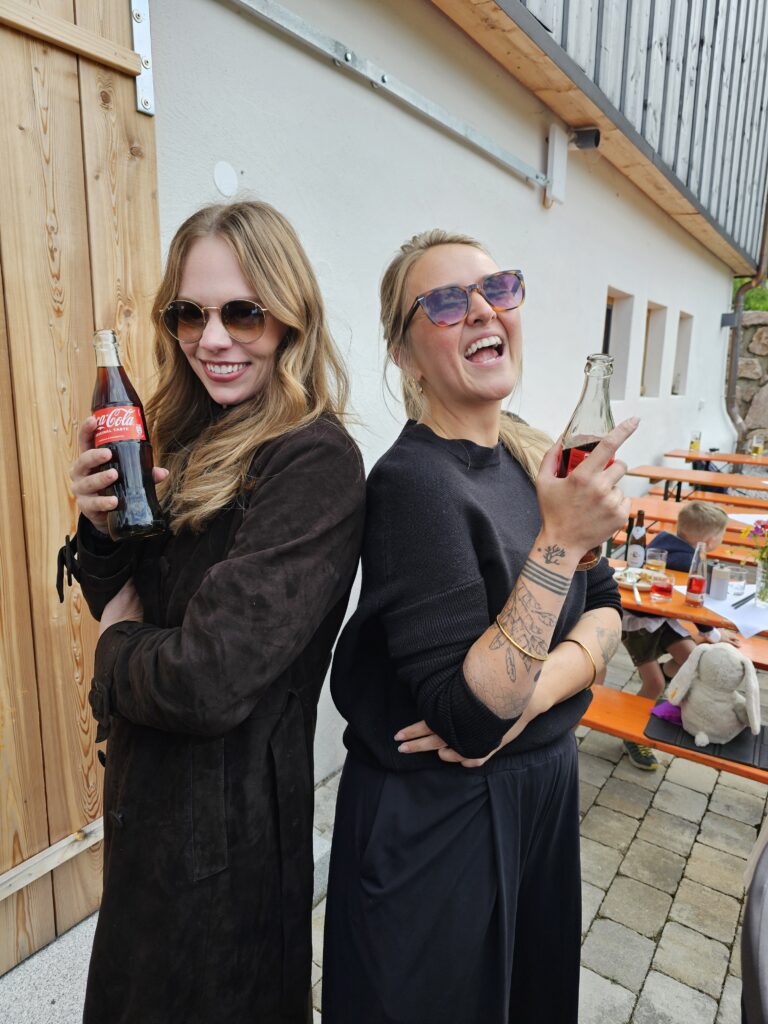
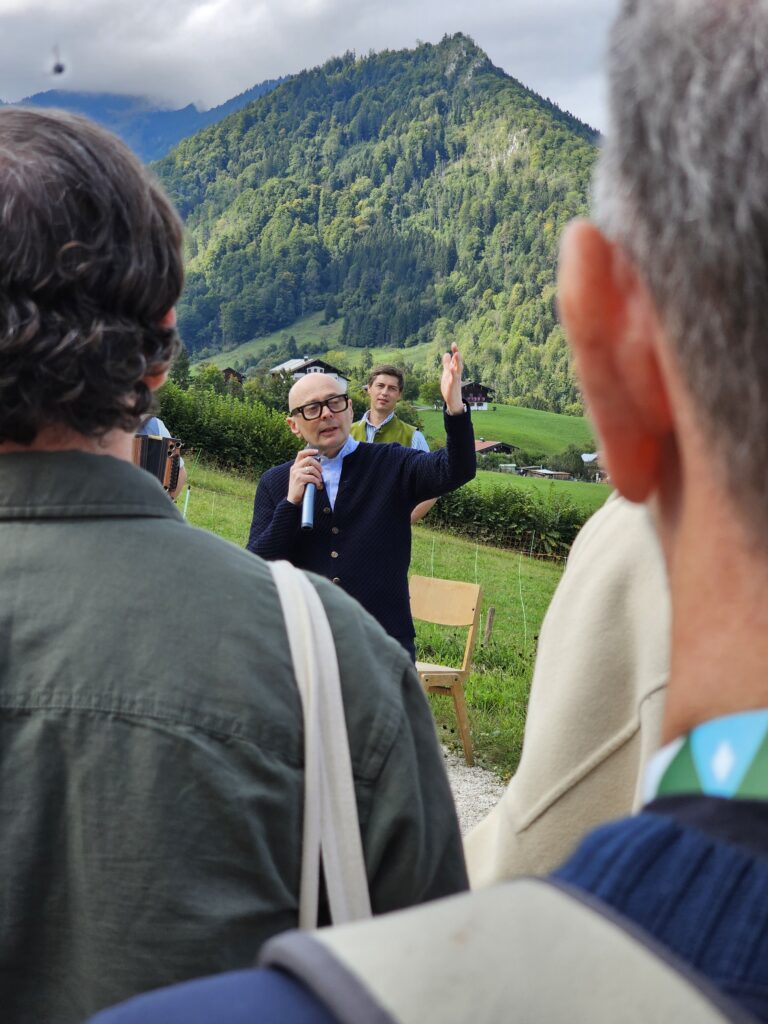
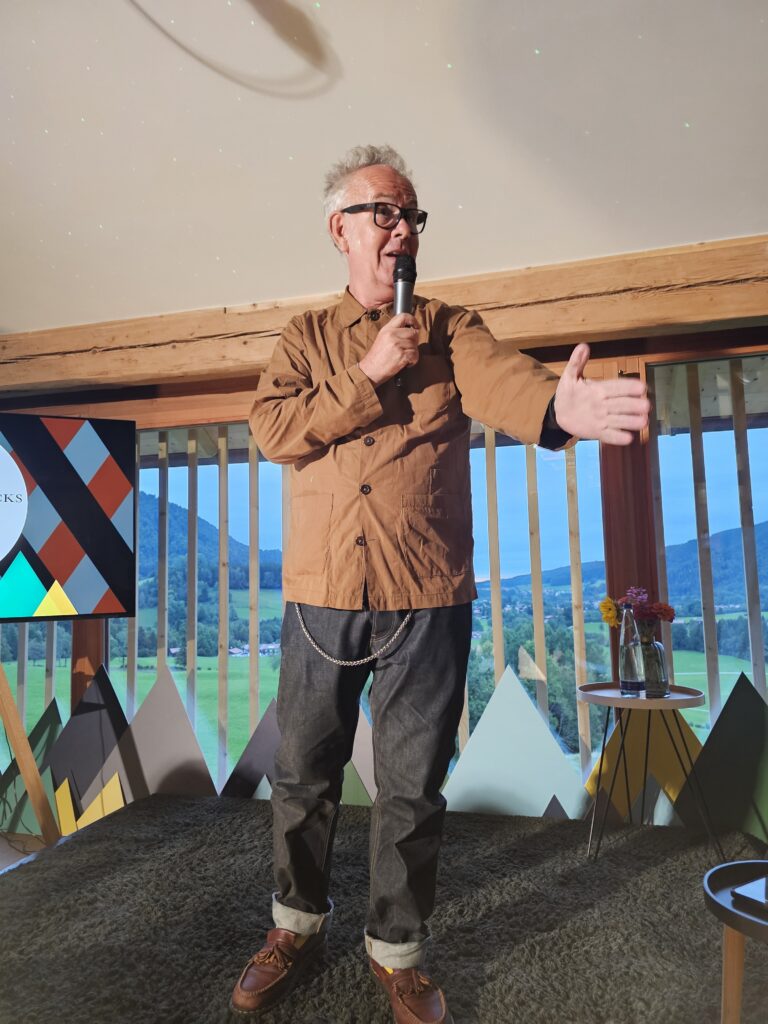
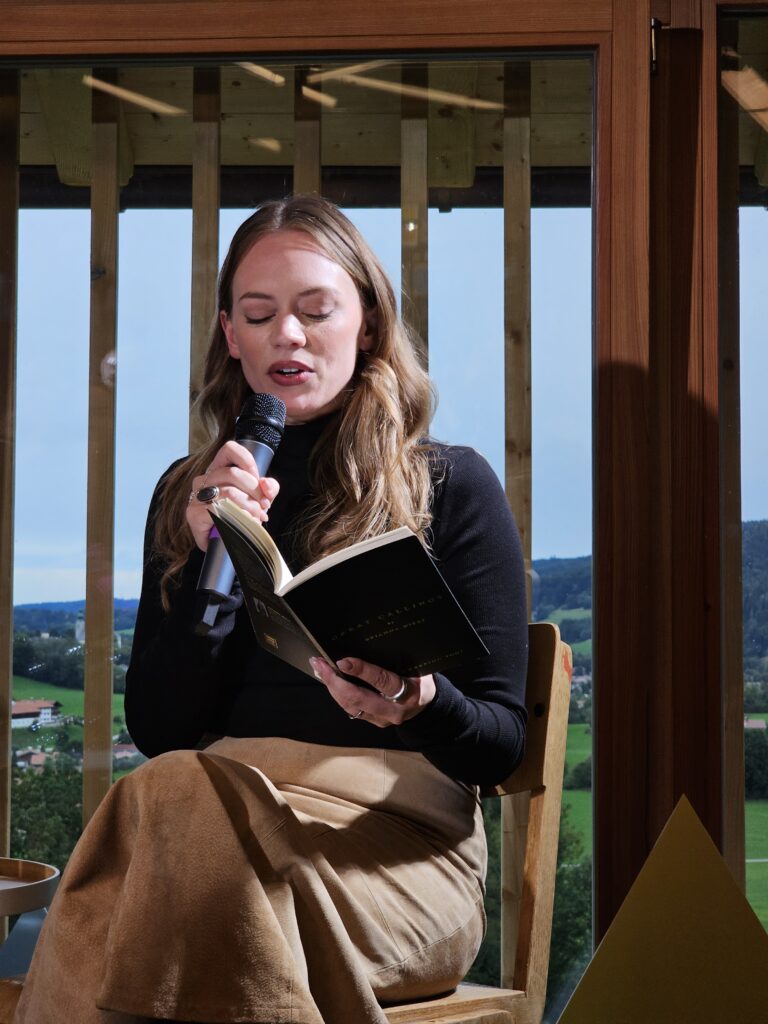
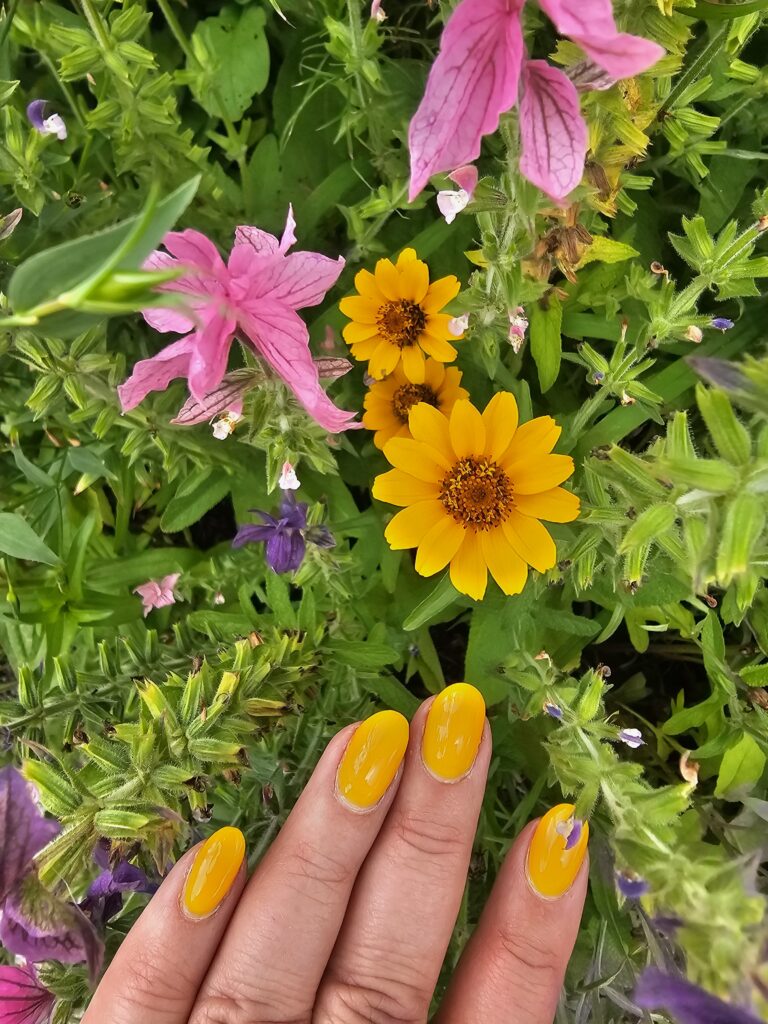
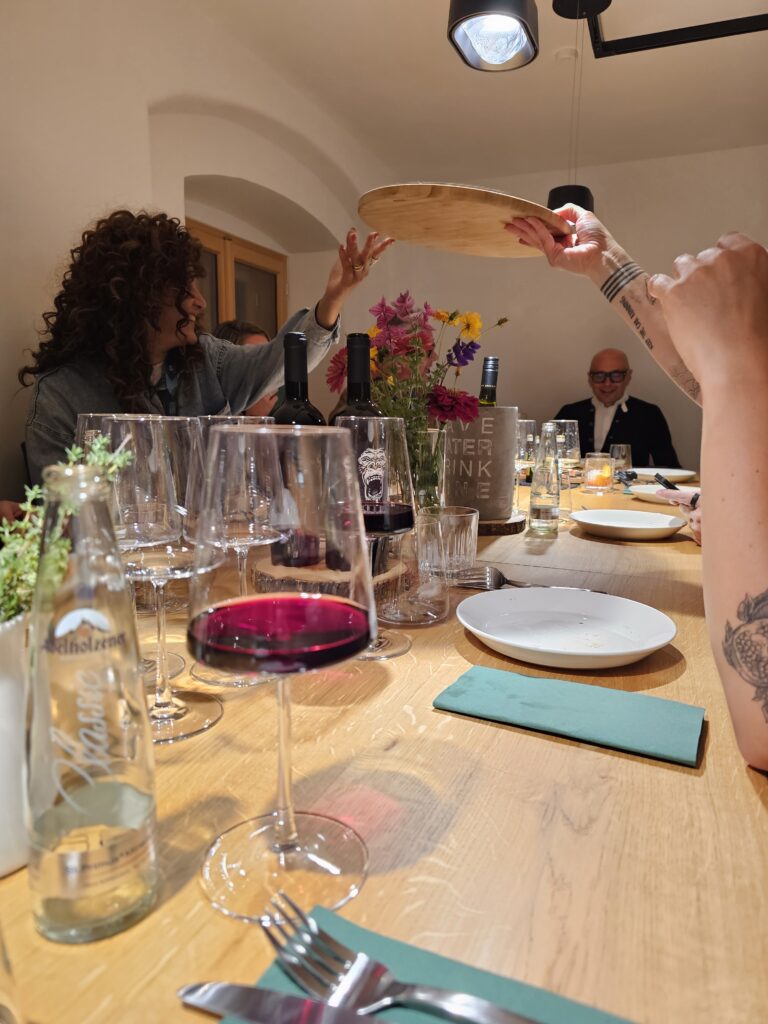
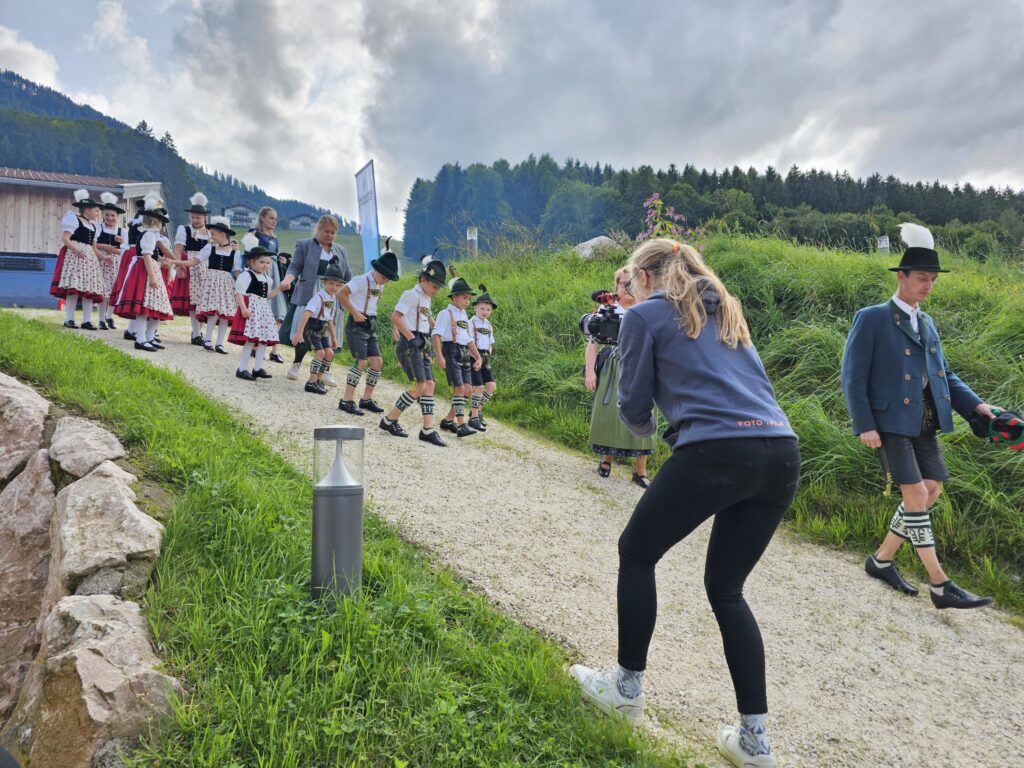
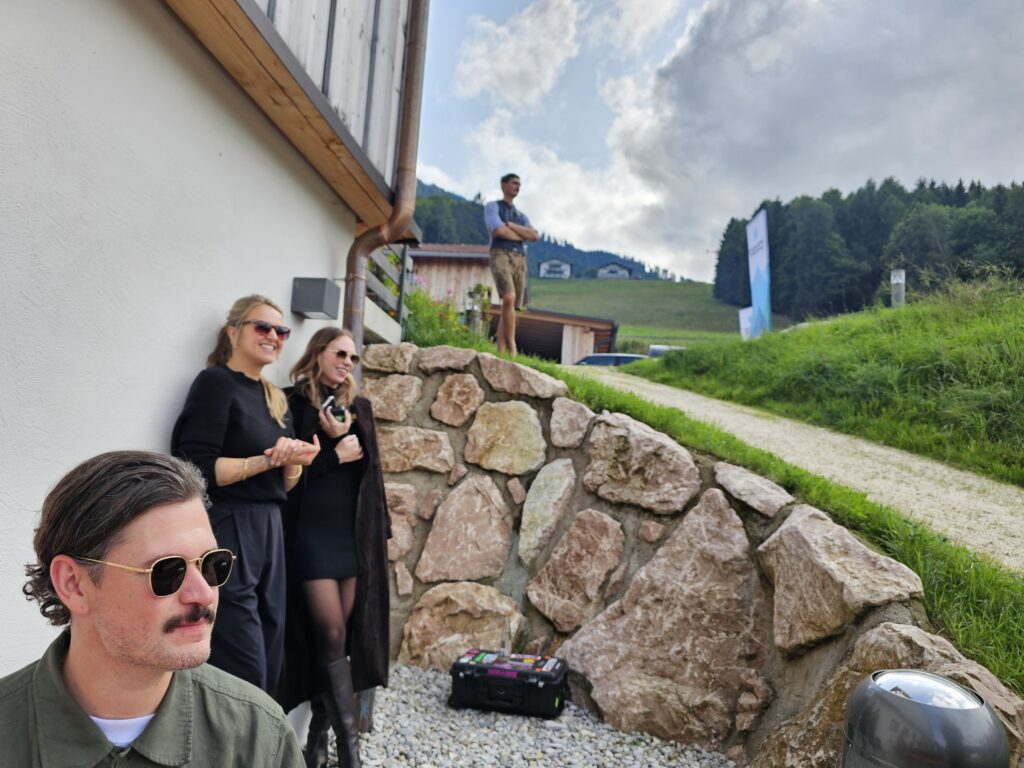
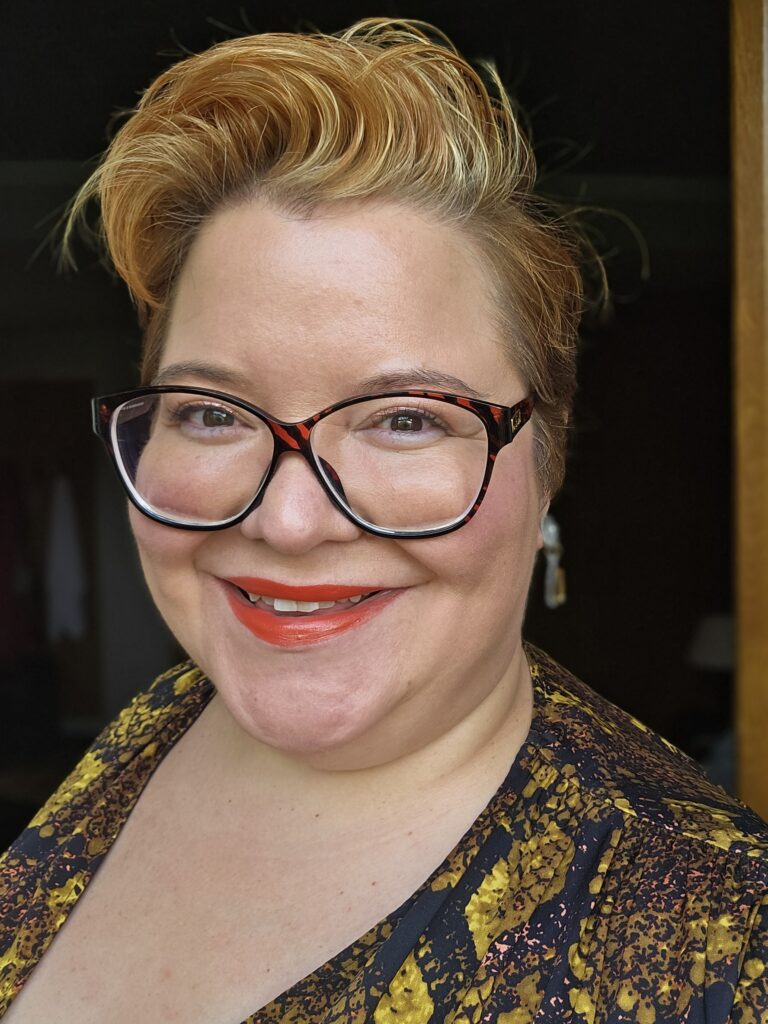
So where does this leave us?
Well I’m back at my desk, still reflecting on my experiences. I’ve since been to a few meet-ups. I’m working with clients to help them improve the way they communicate. I’m thinking about how to speak better, generally and specifically about how people can make things accessible. Want me to speak to your audience? Get in touch! lisa [@] lisariemers.com
One reply on “17ish things I learned at the Speakery Summit”
[…] of my year was getting to participate in Marcus John Henry Brown’s Speakery summit, which I wrote a long love-letter about back in September. It was a really remarkable event, made me rethink how I deliver presentations, […]